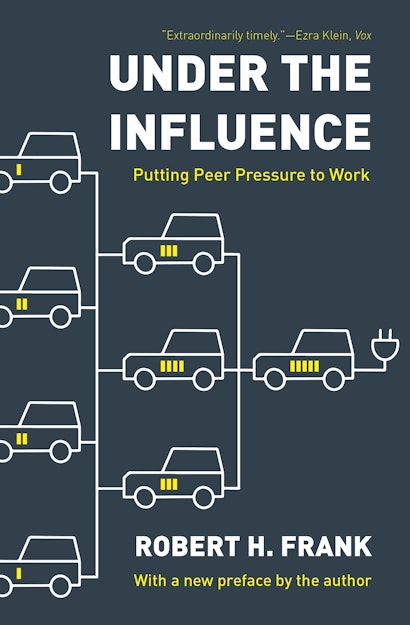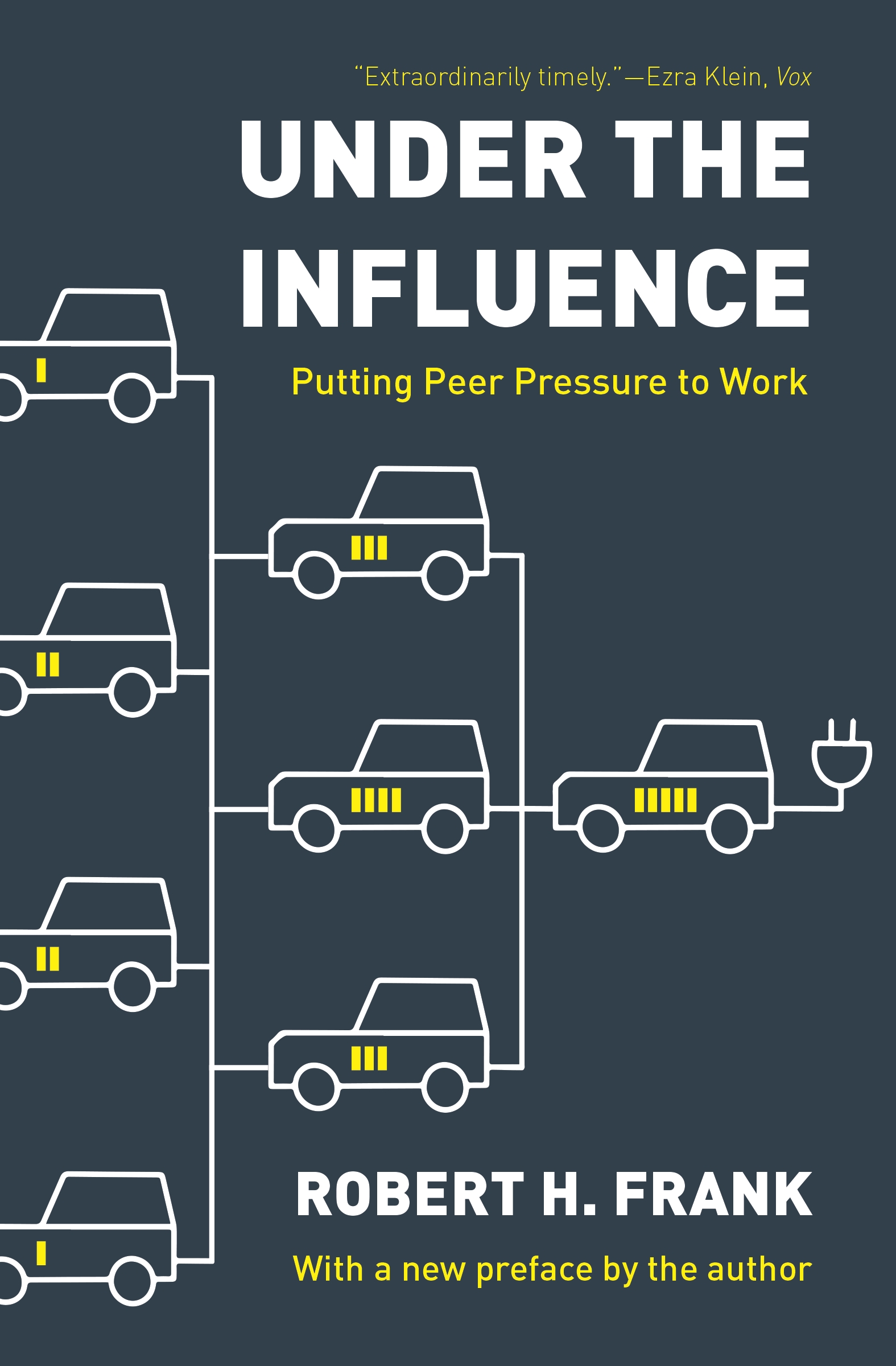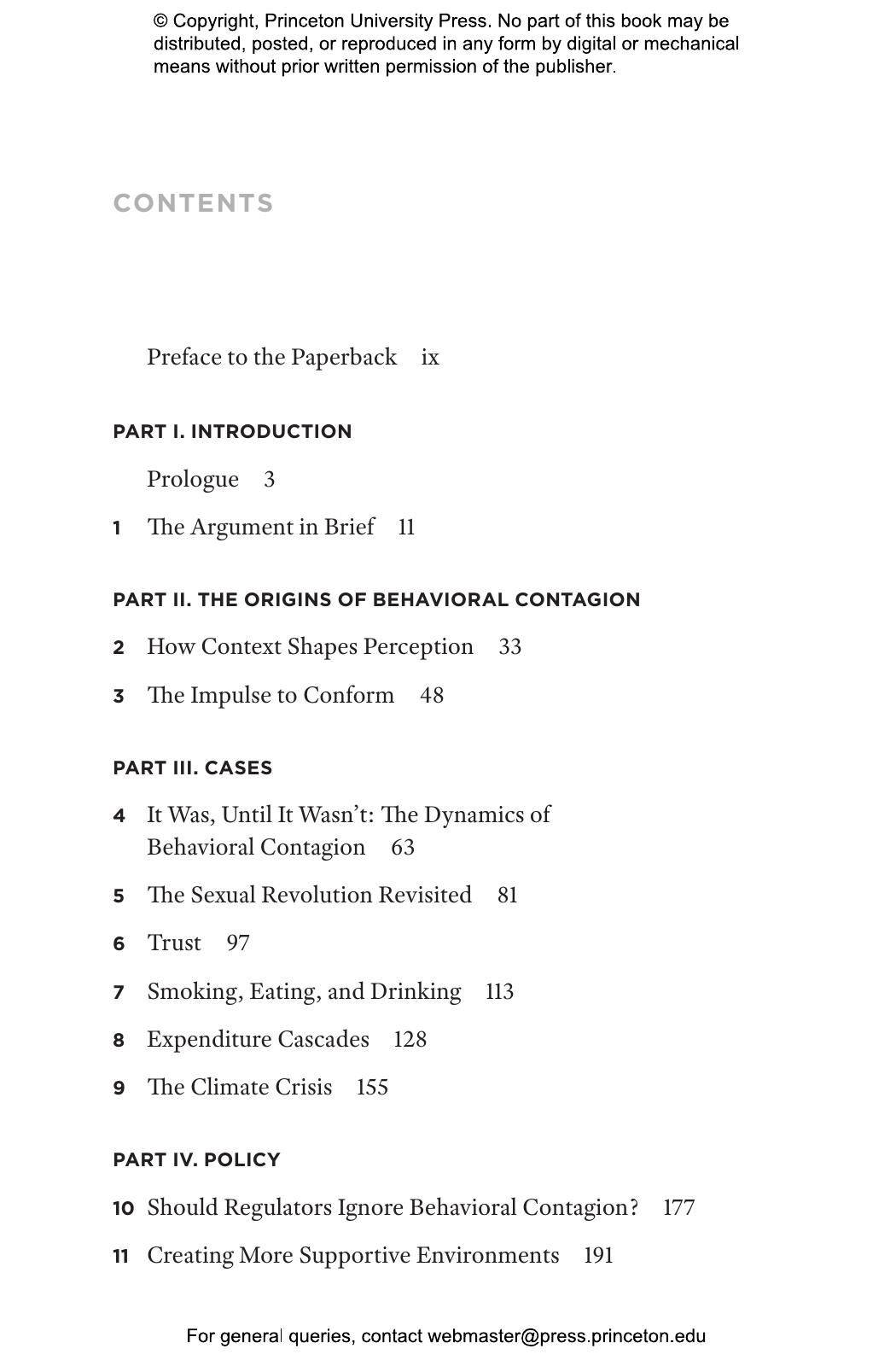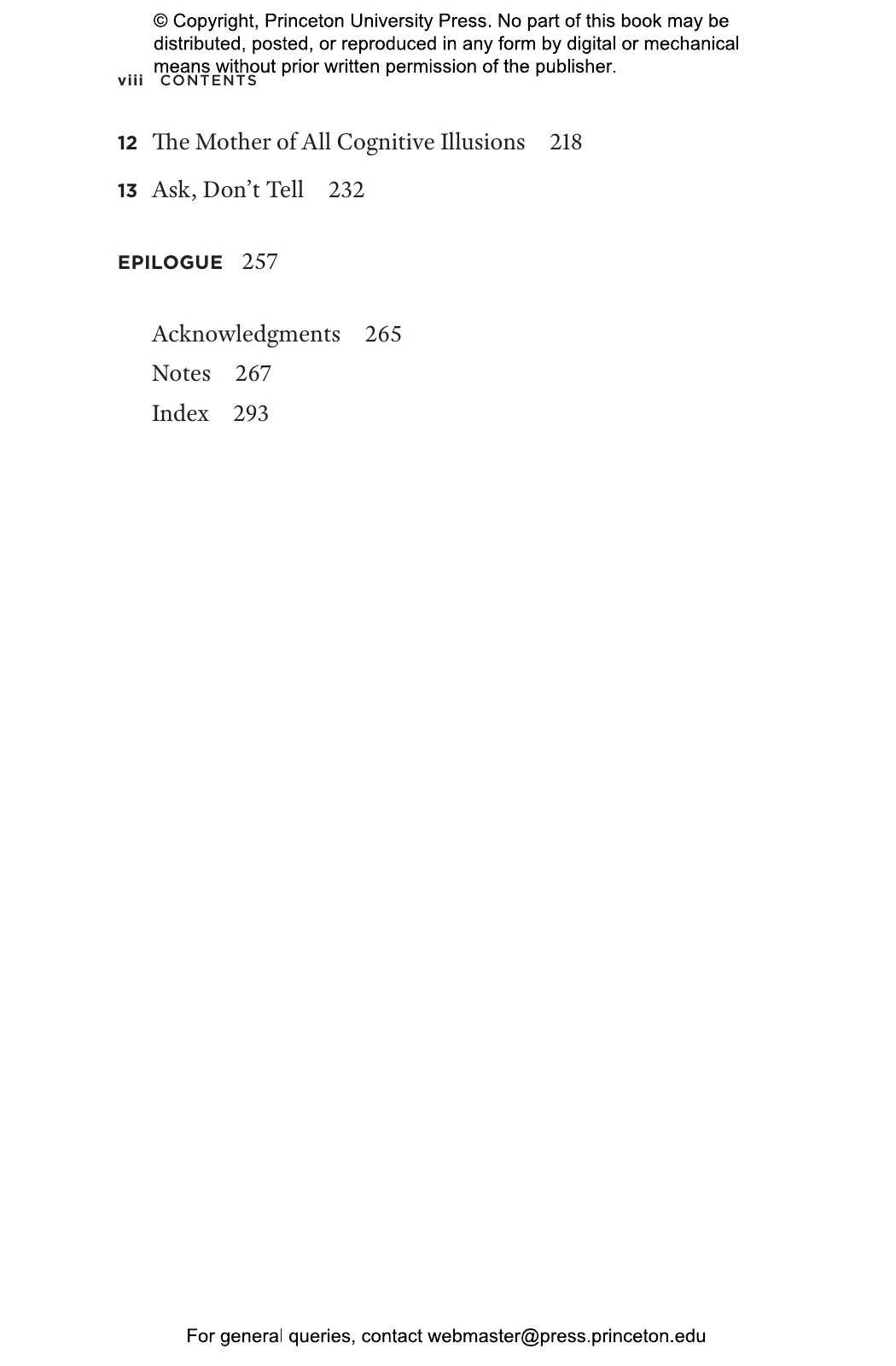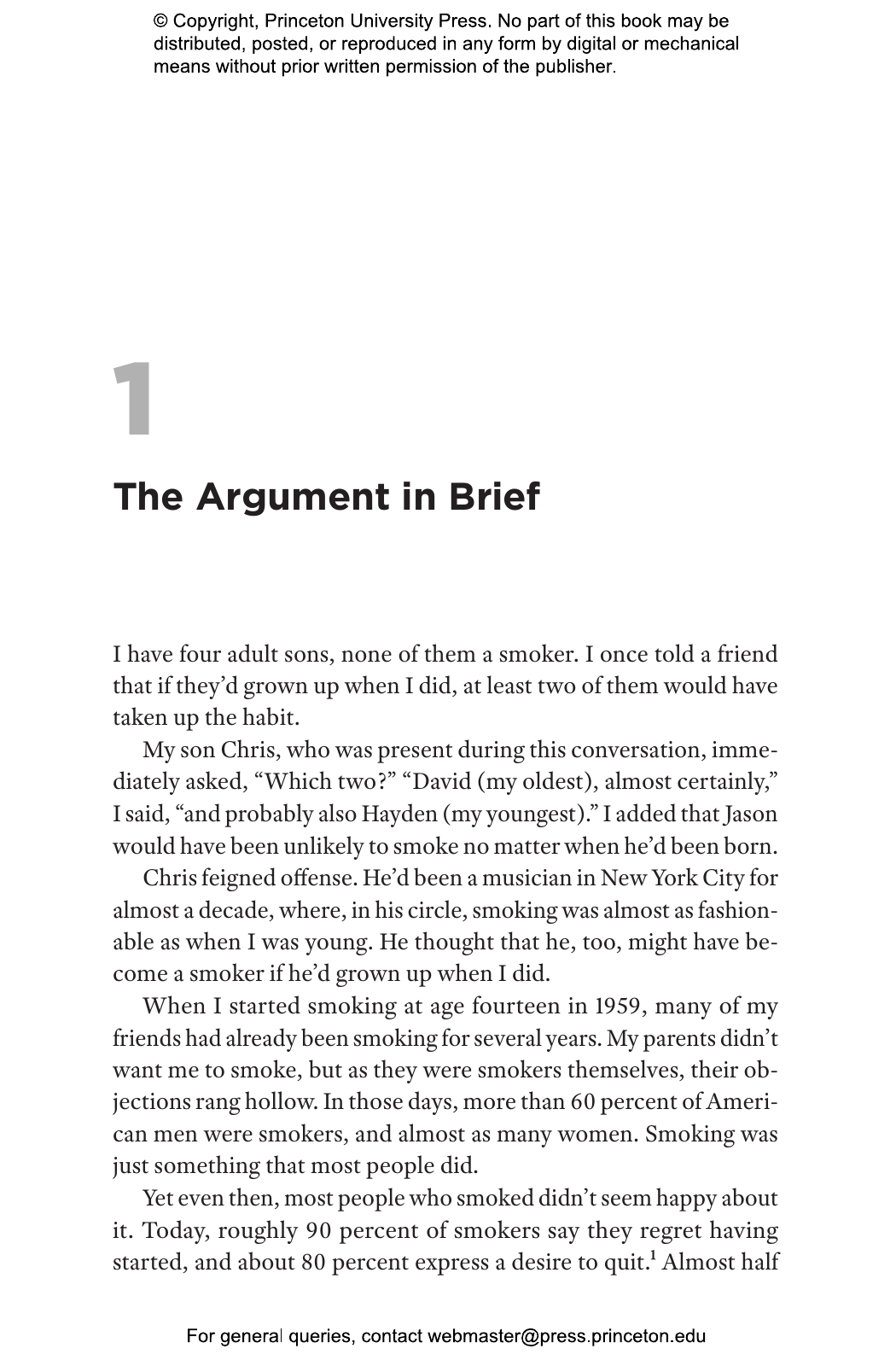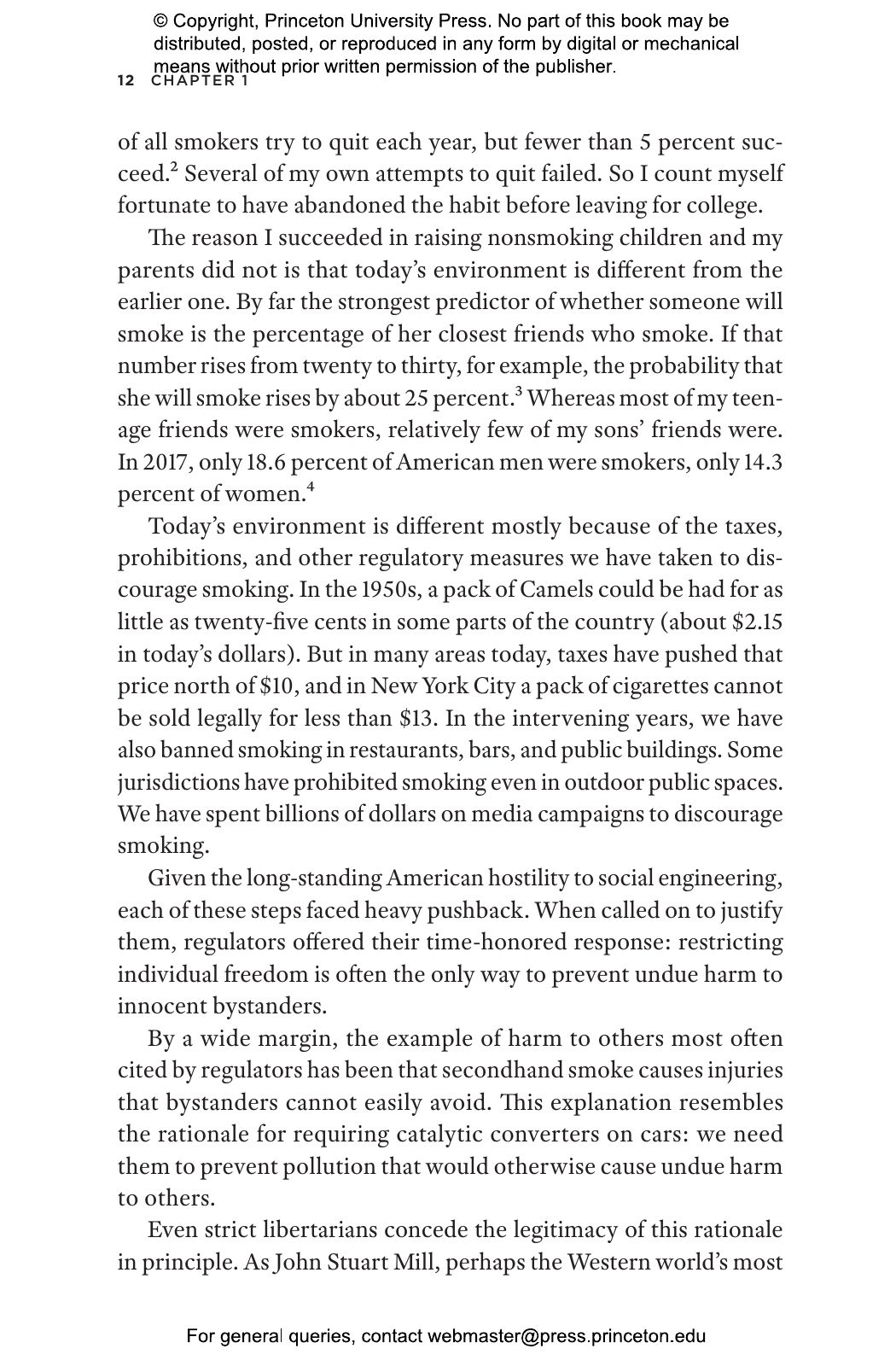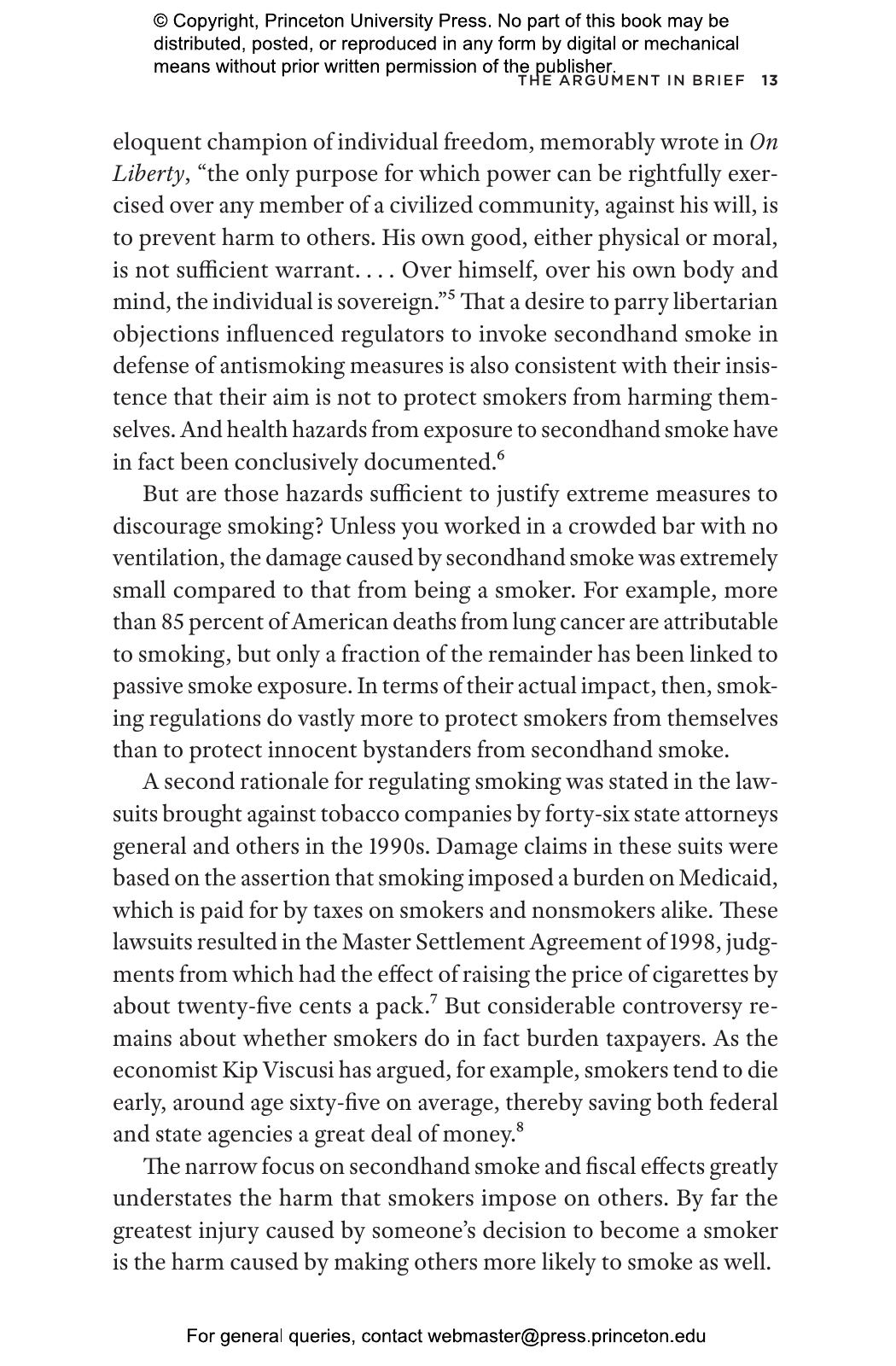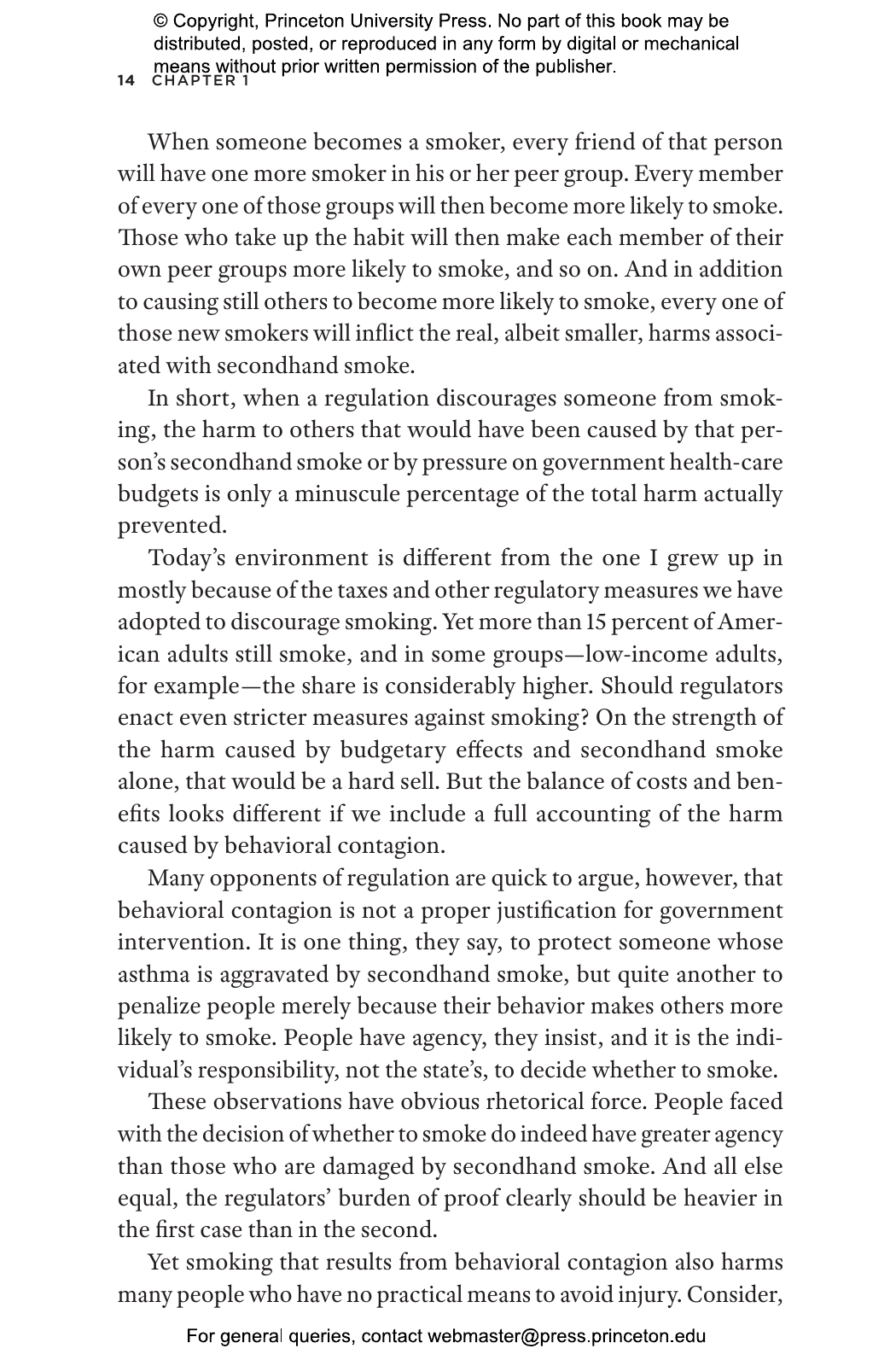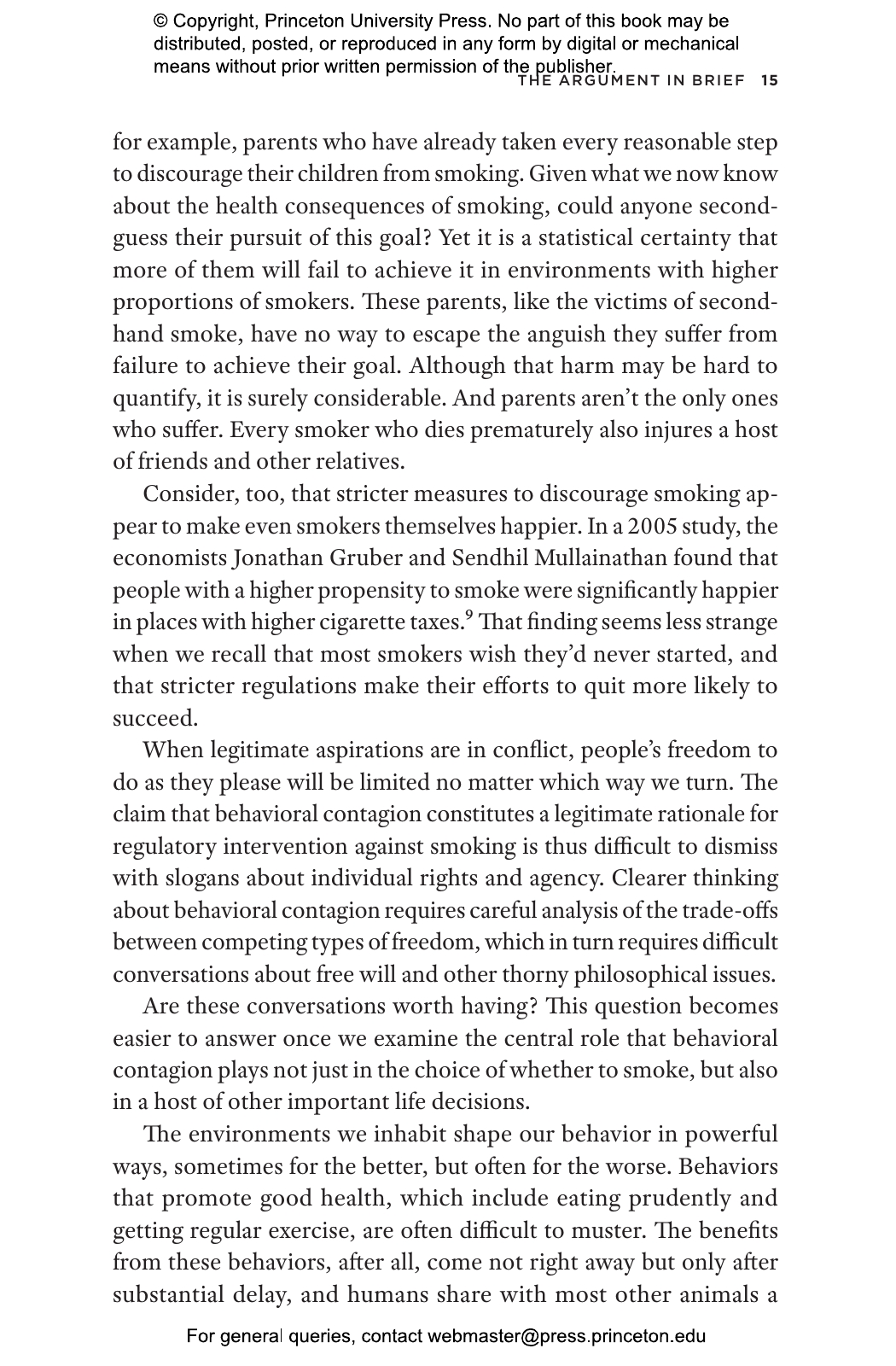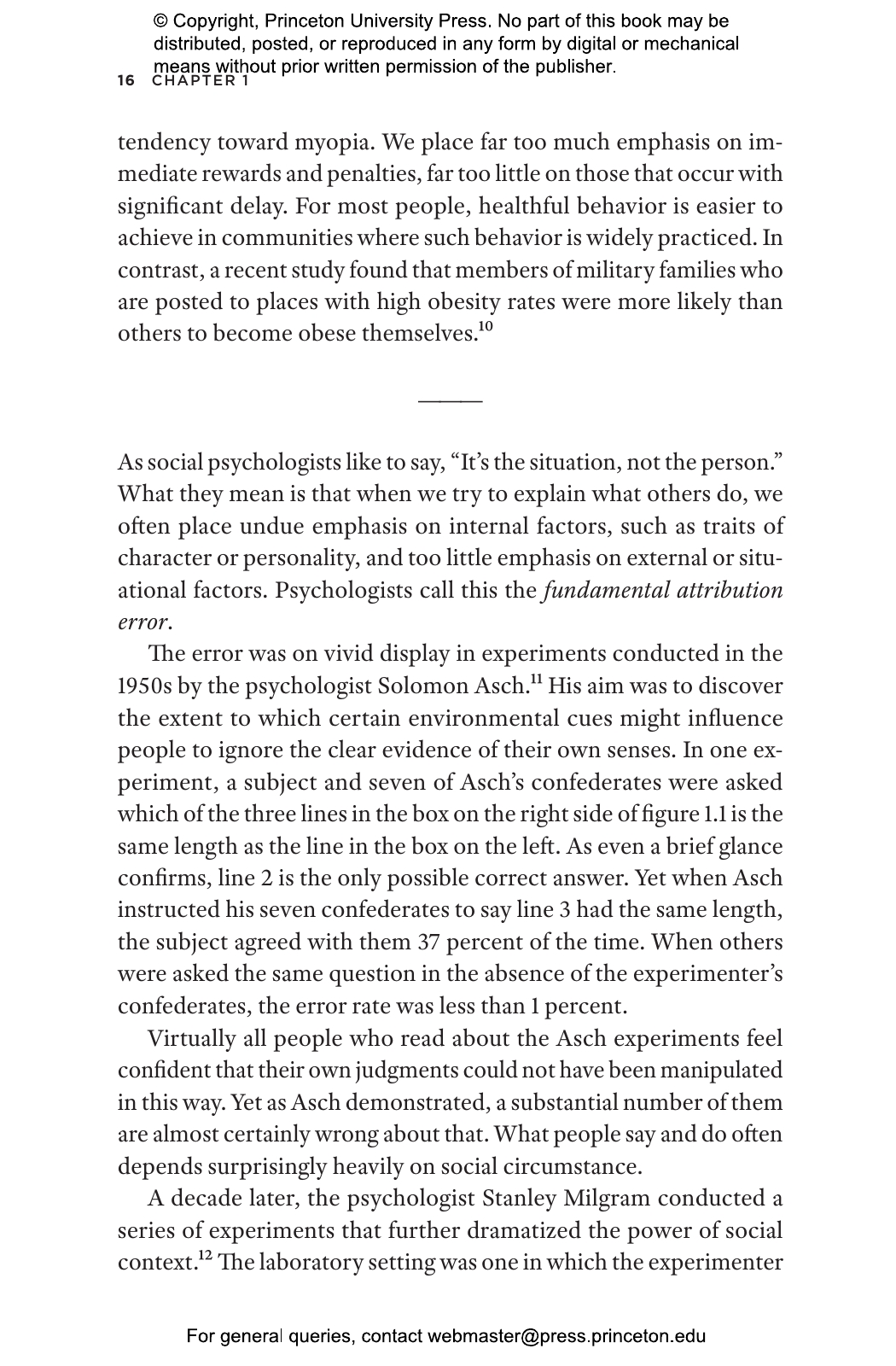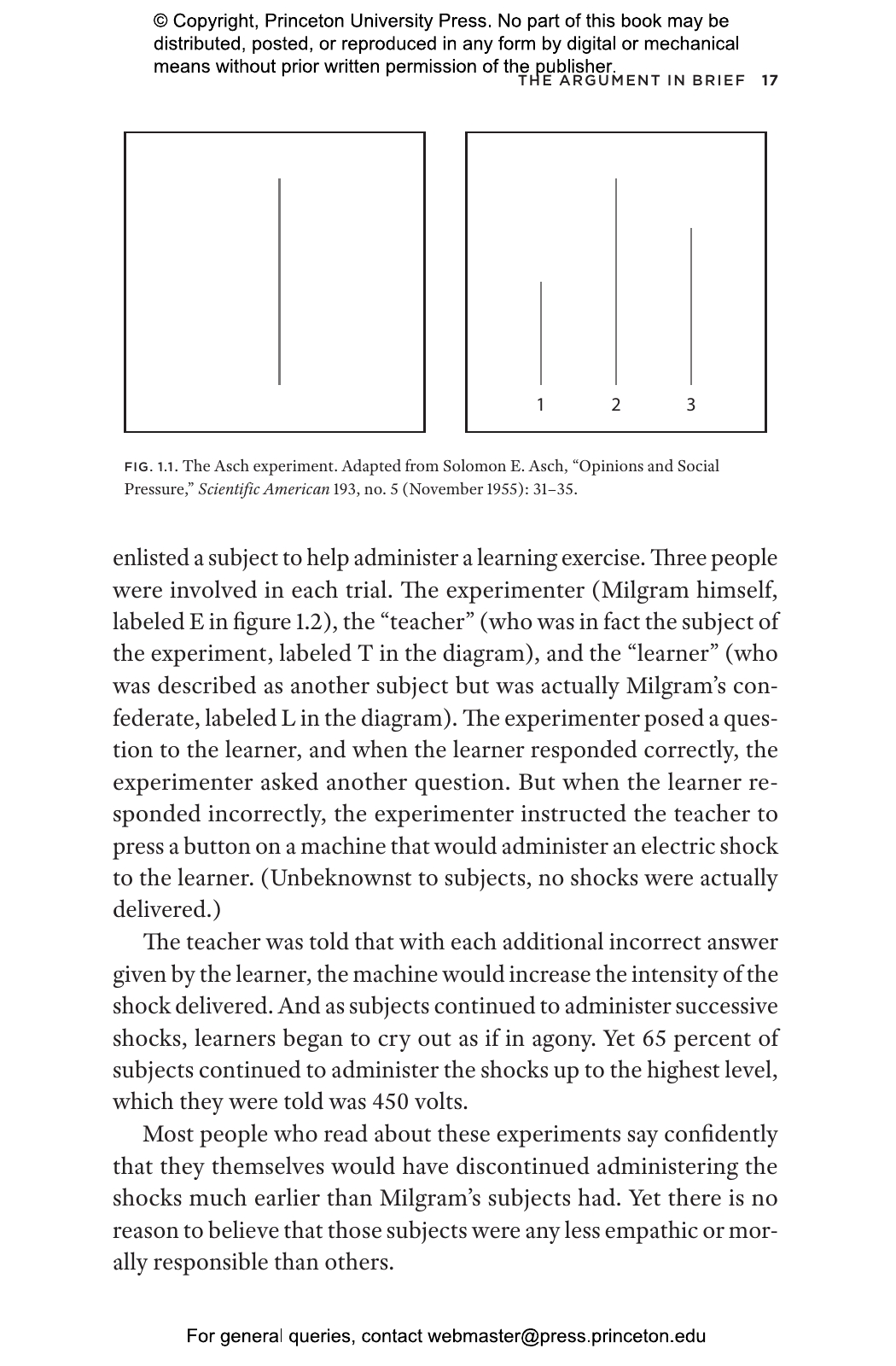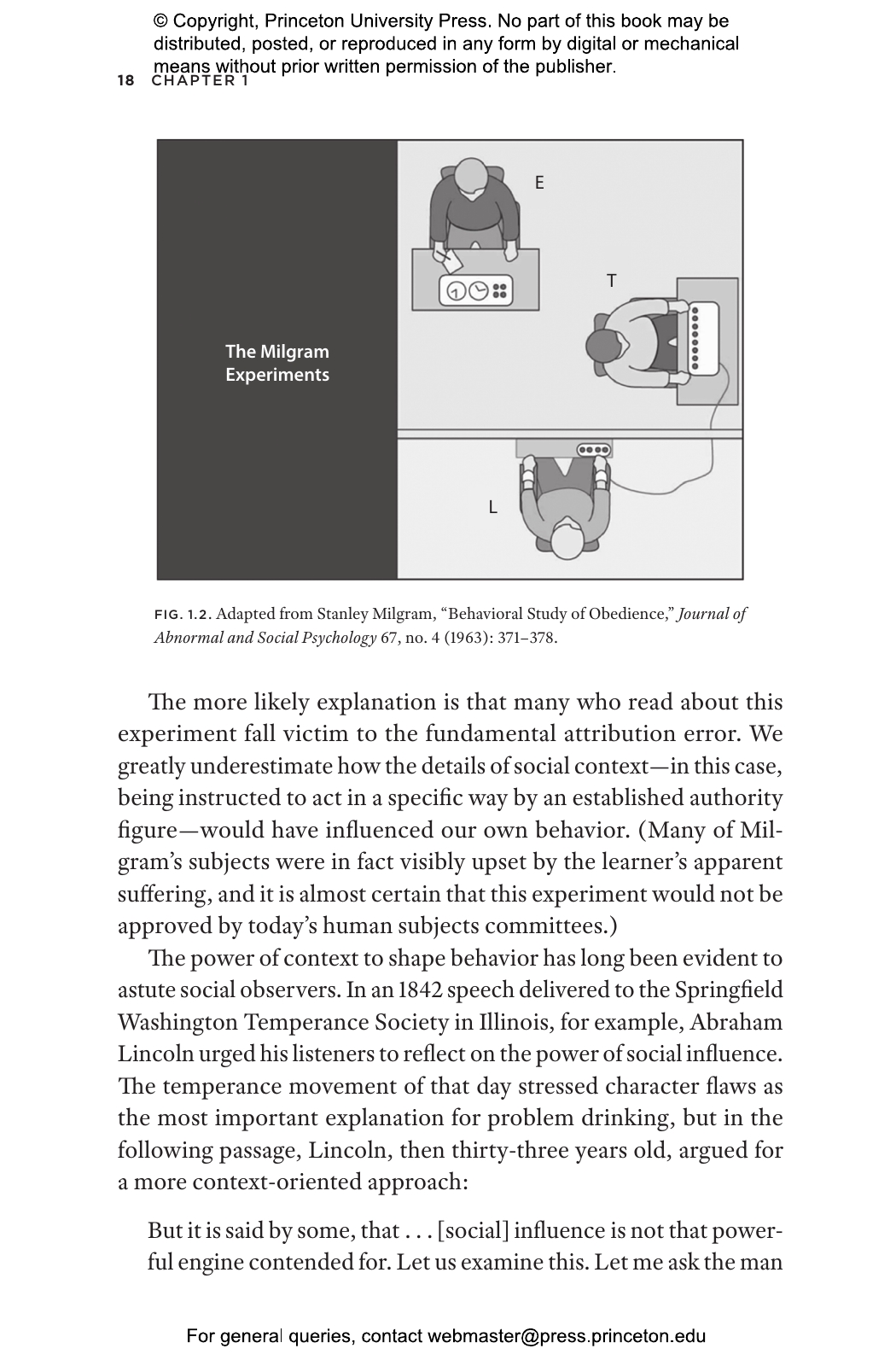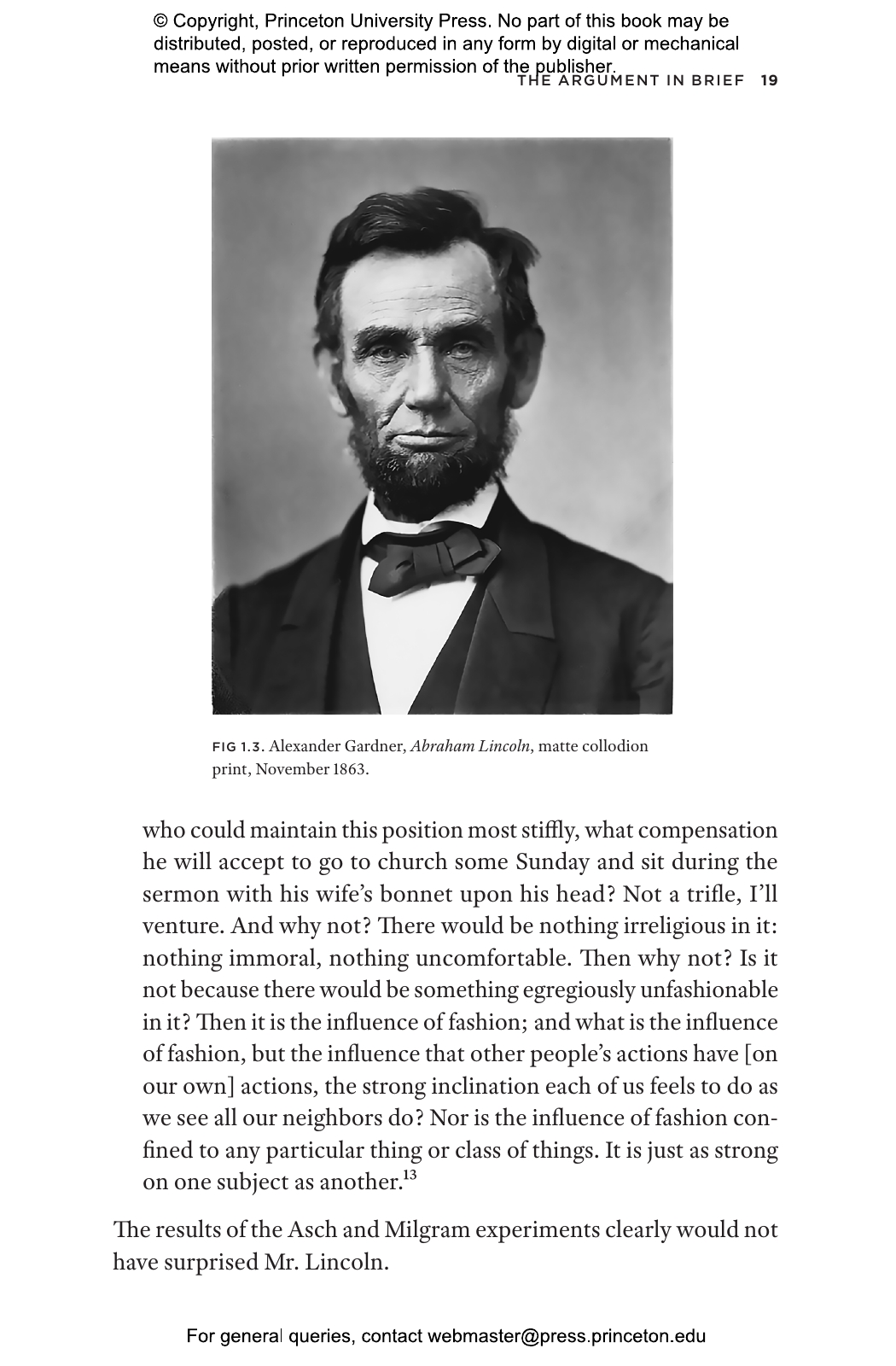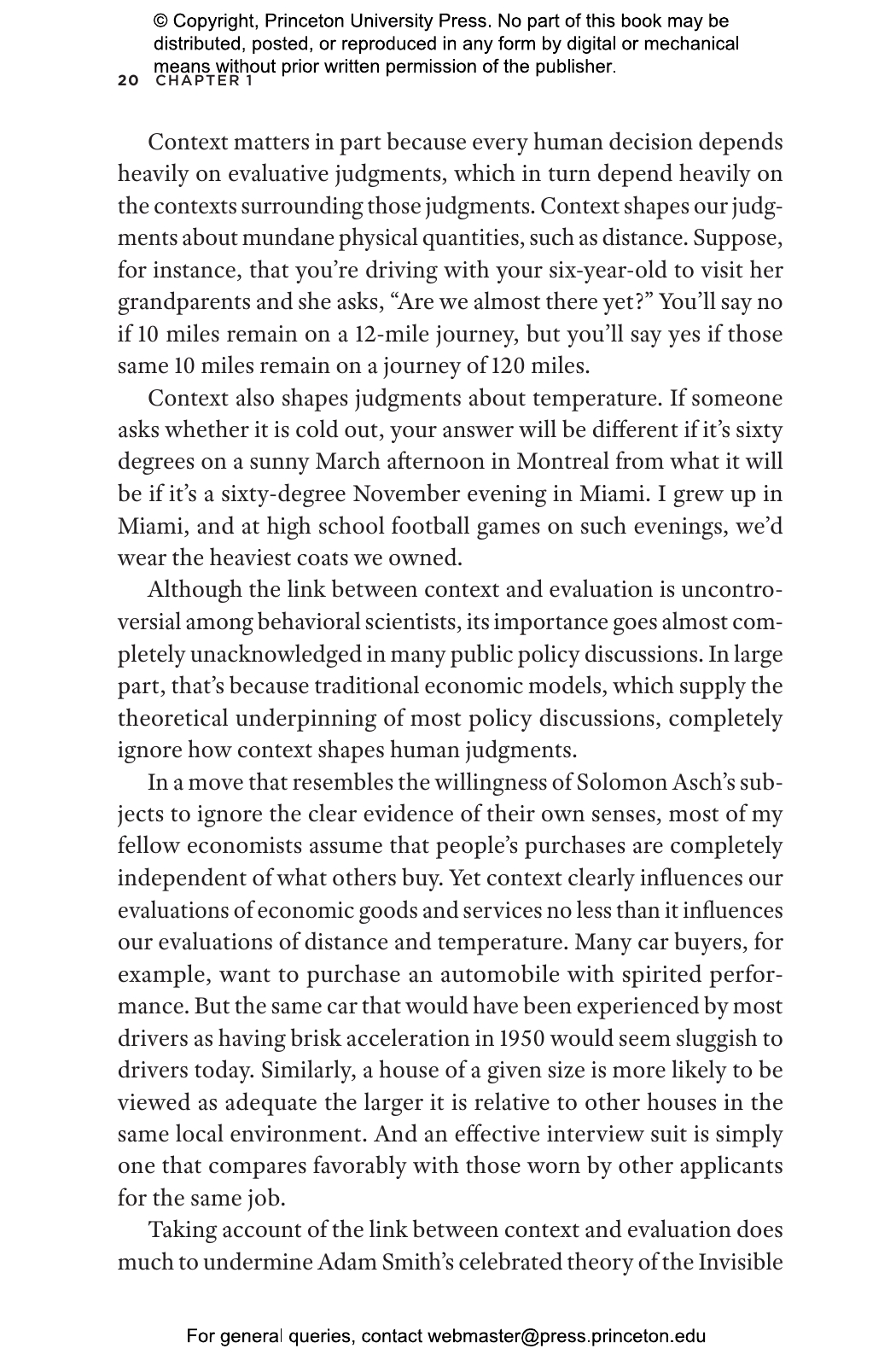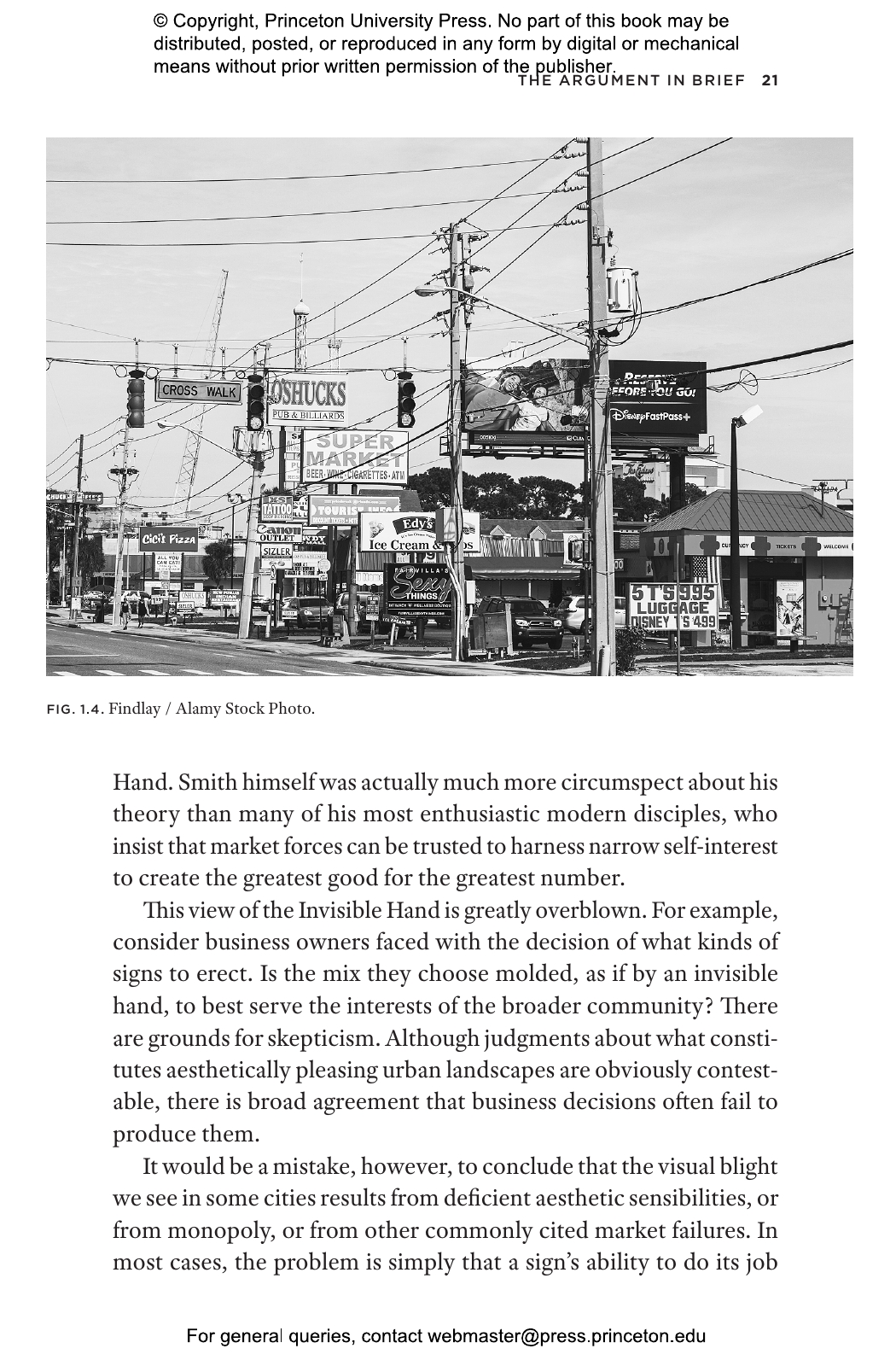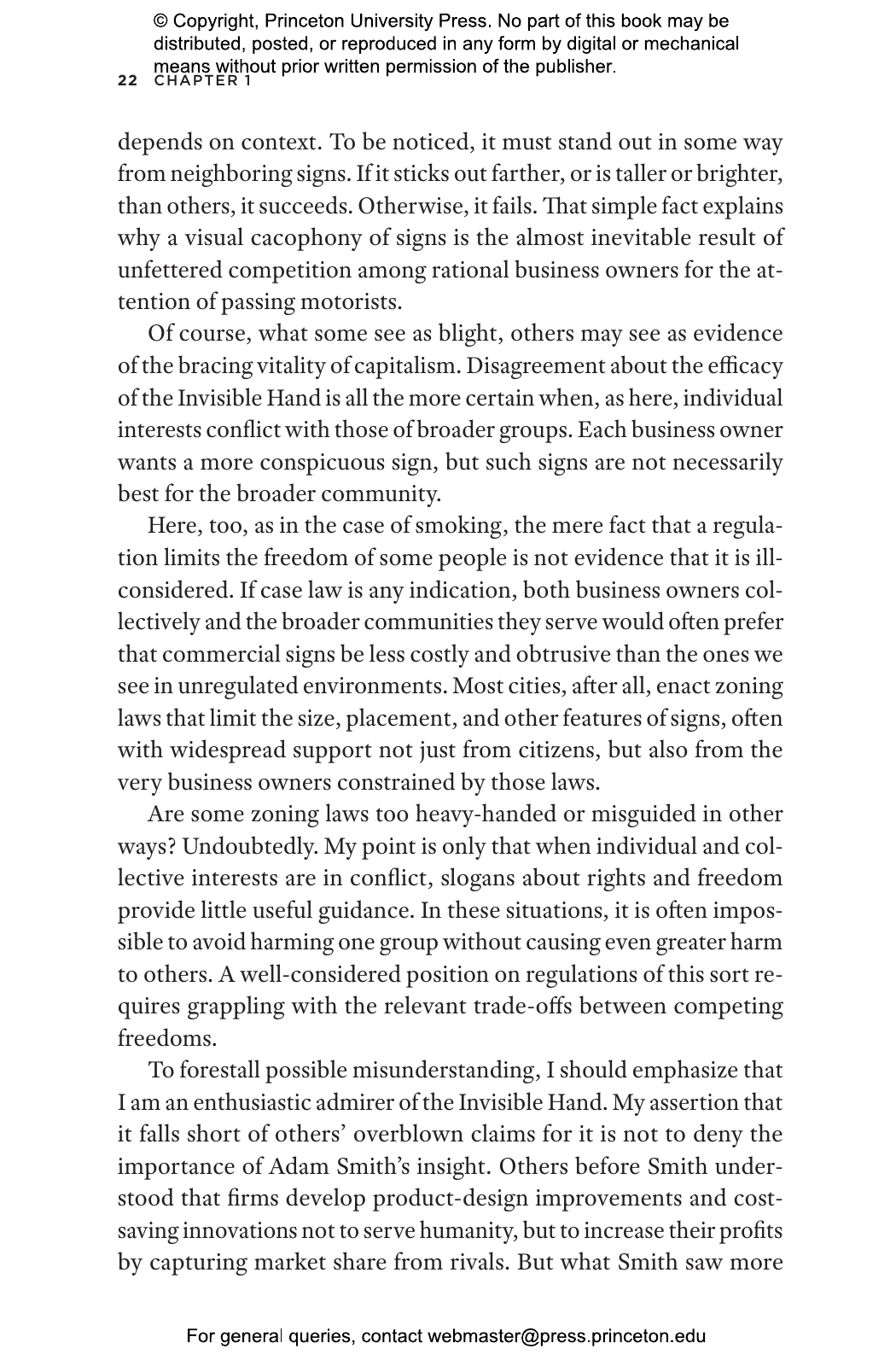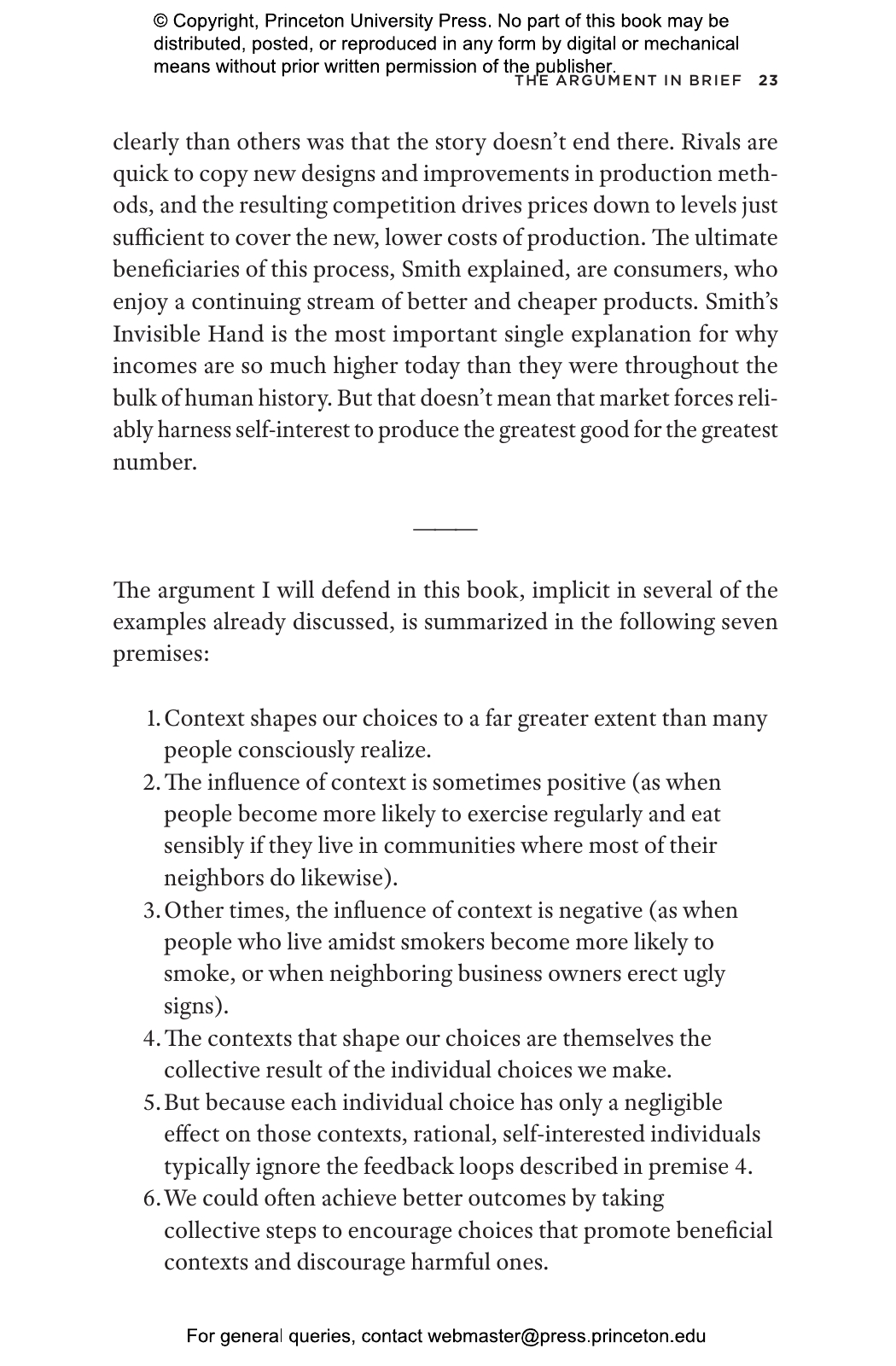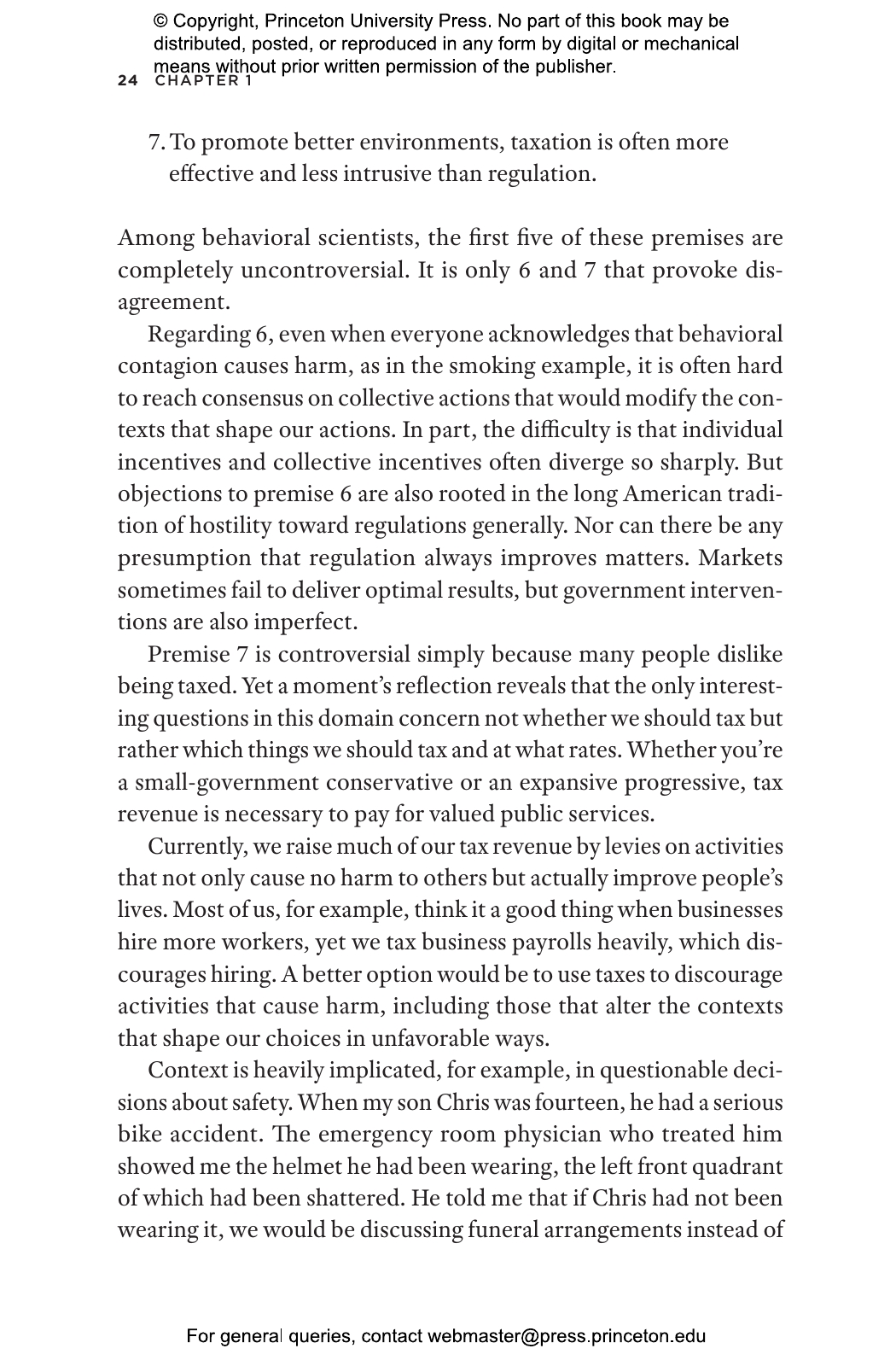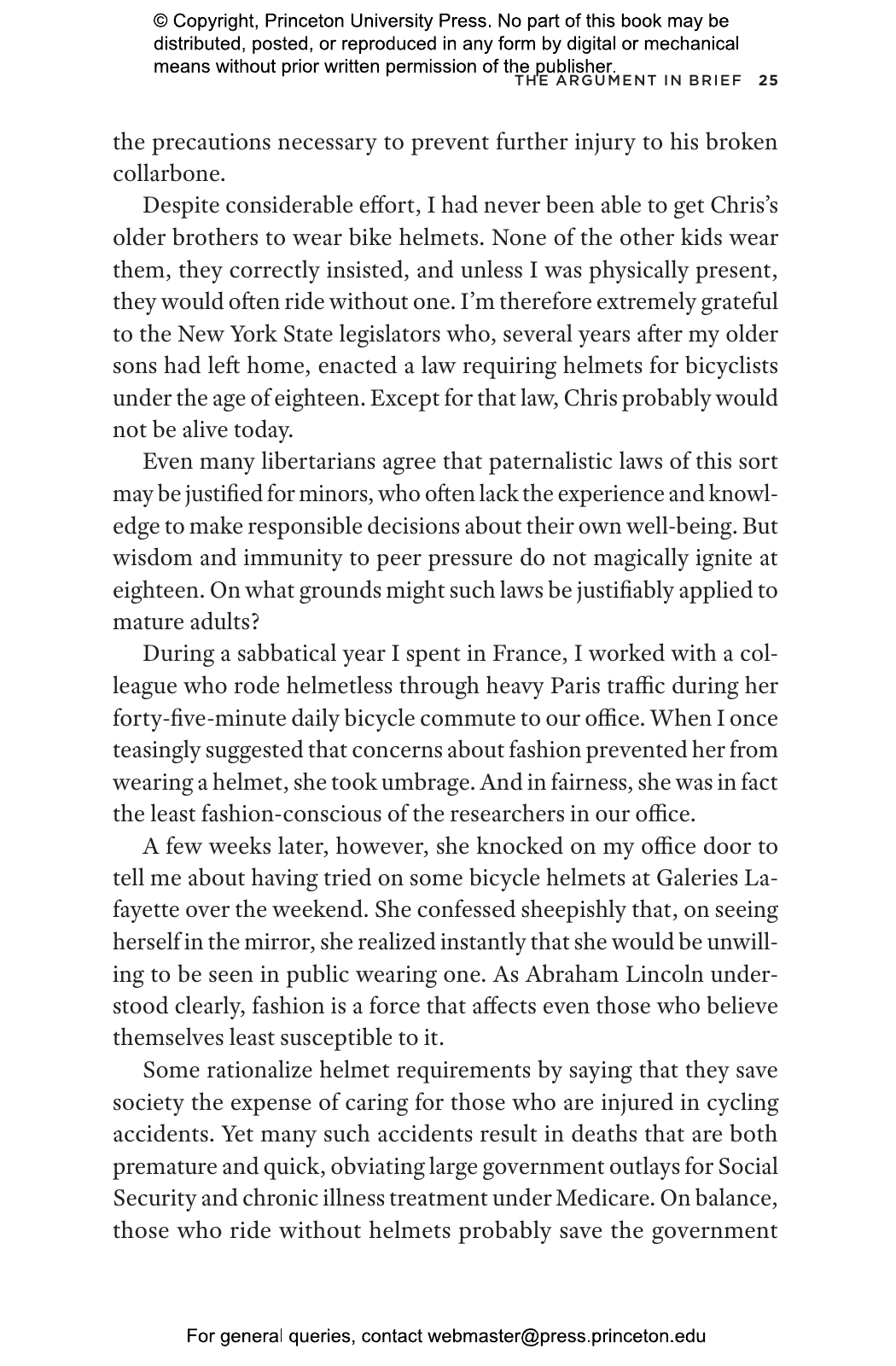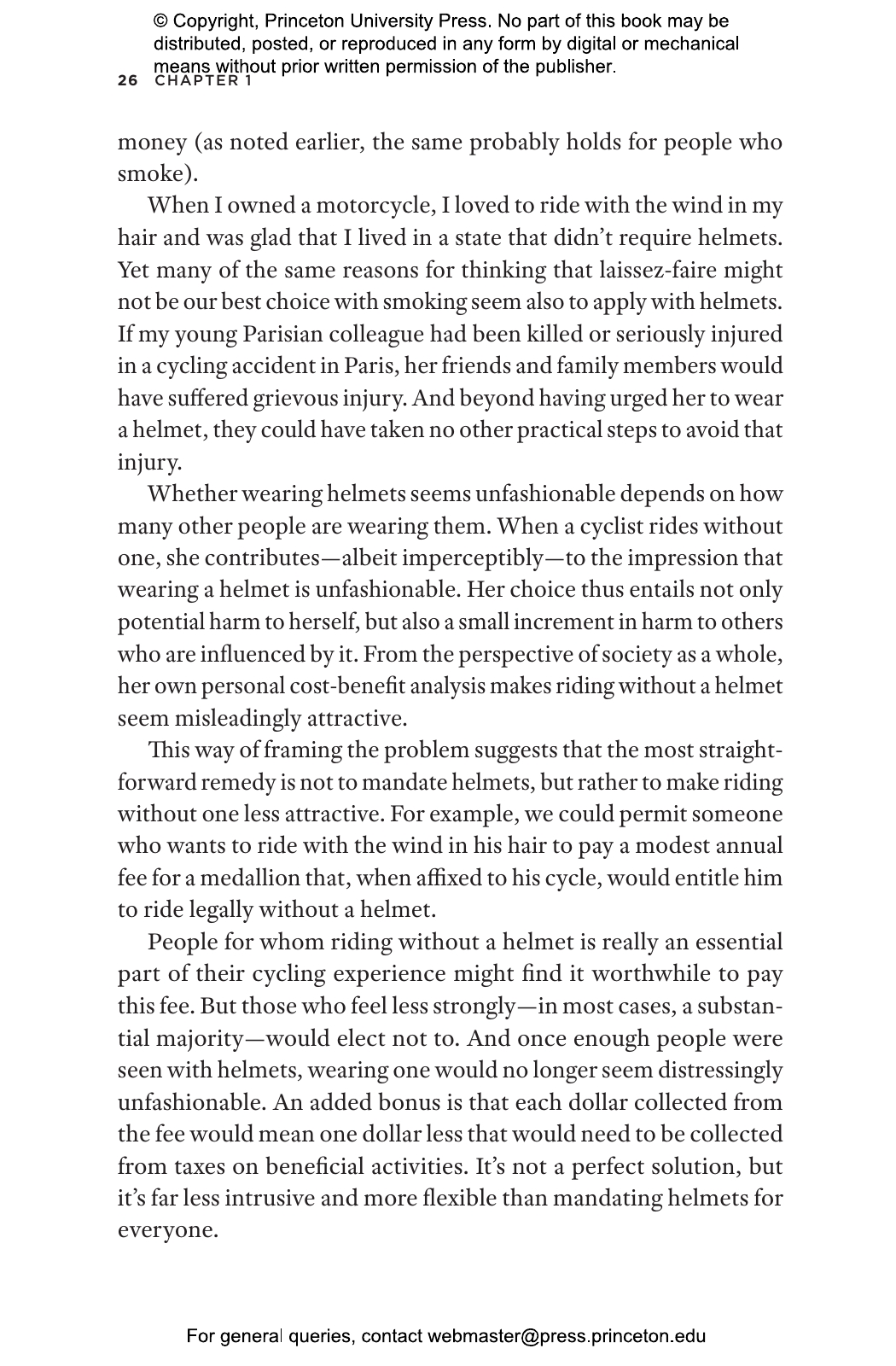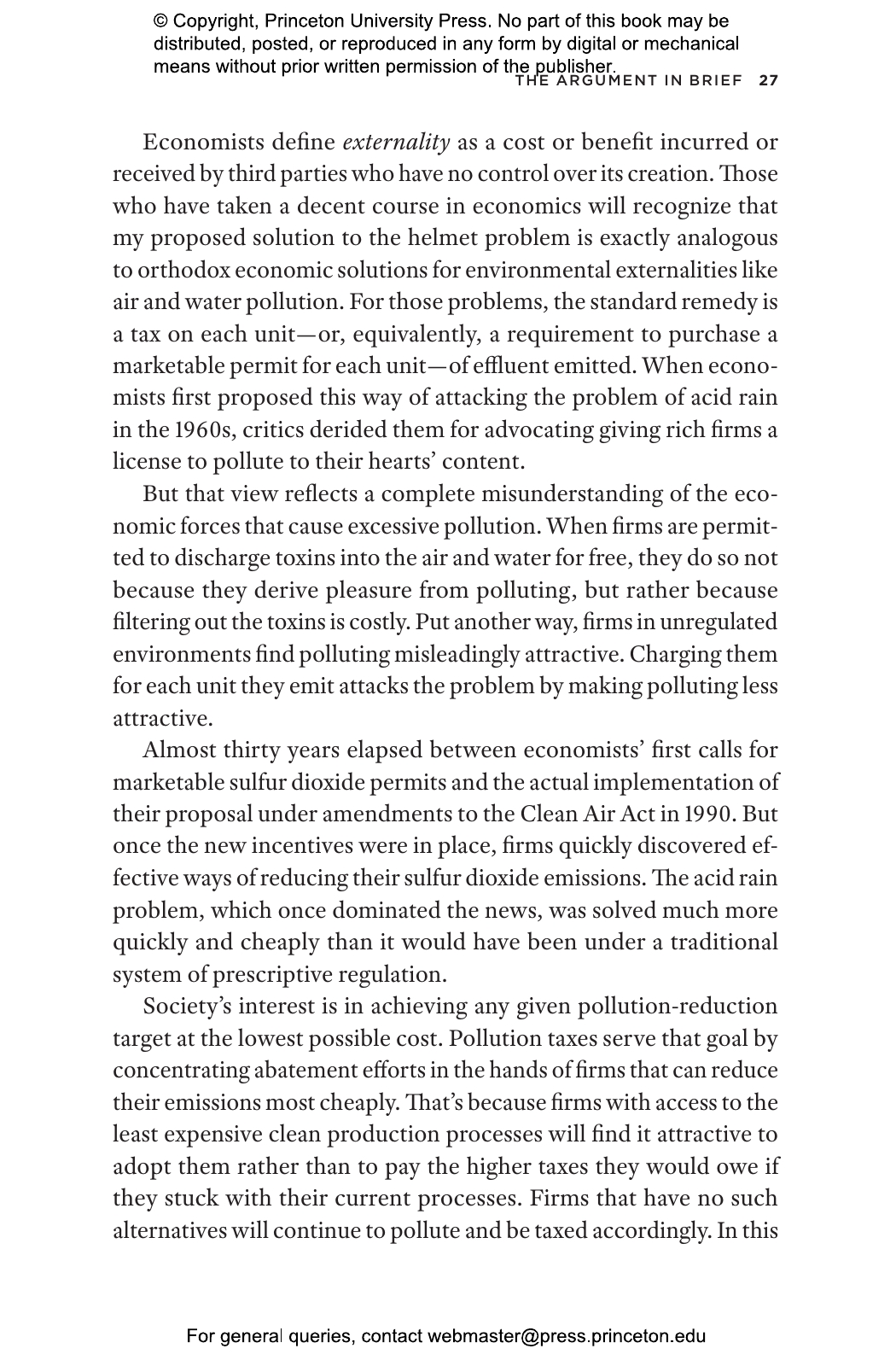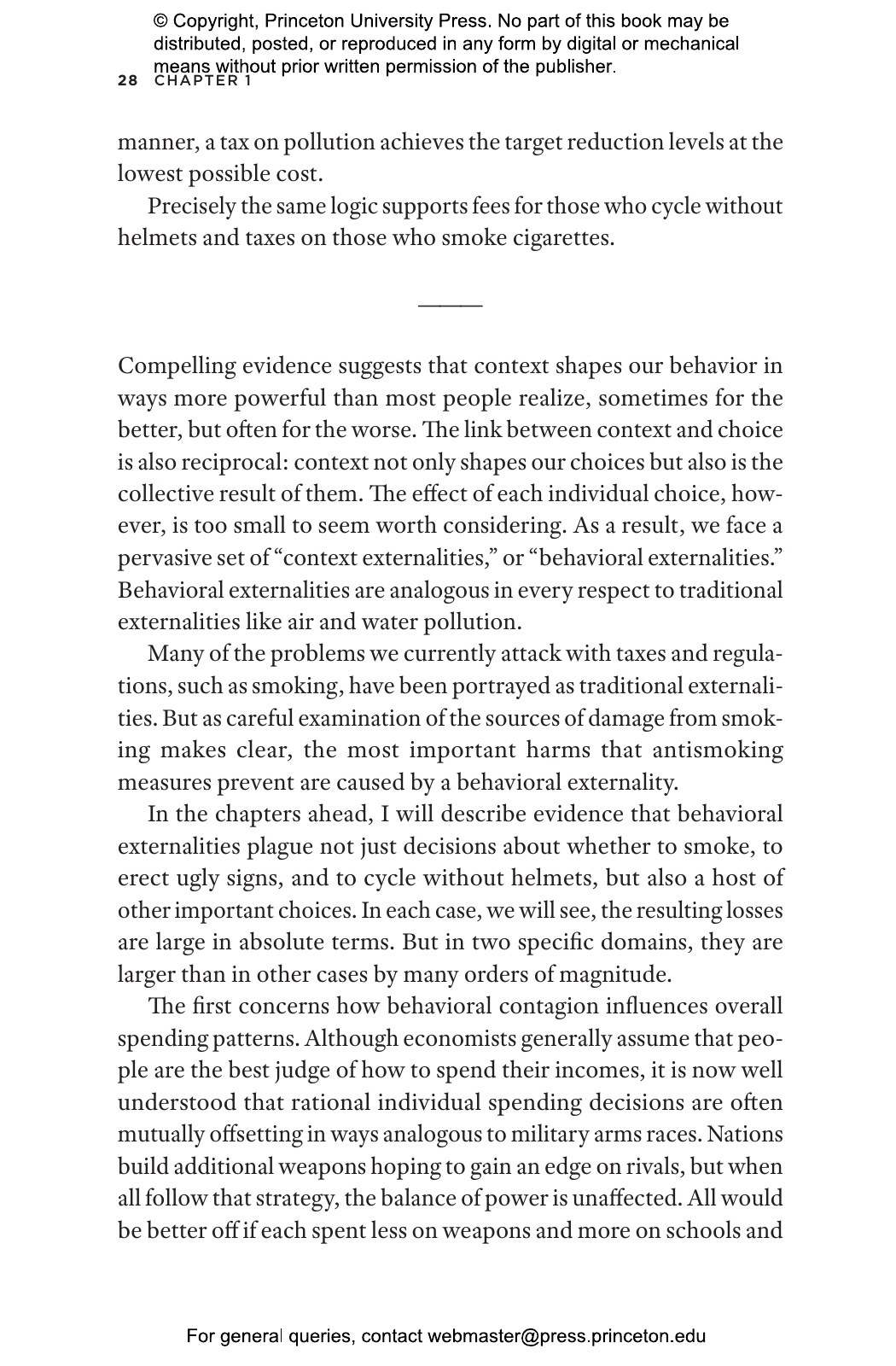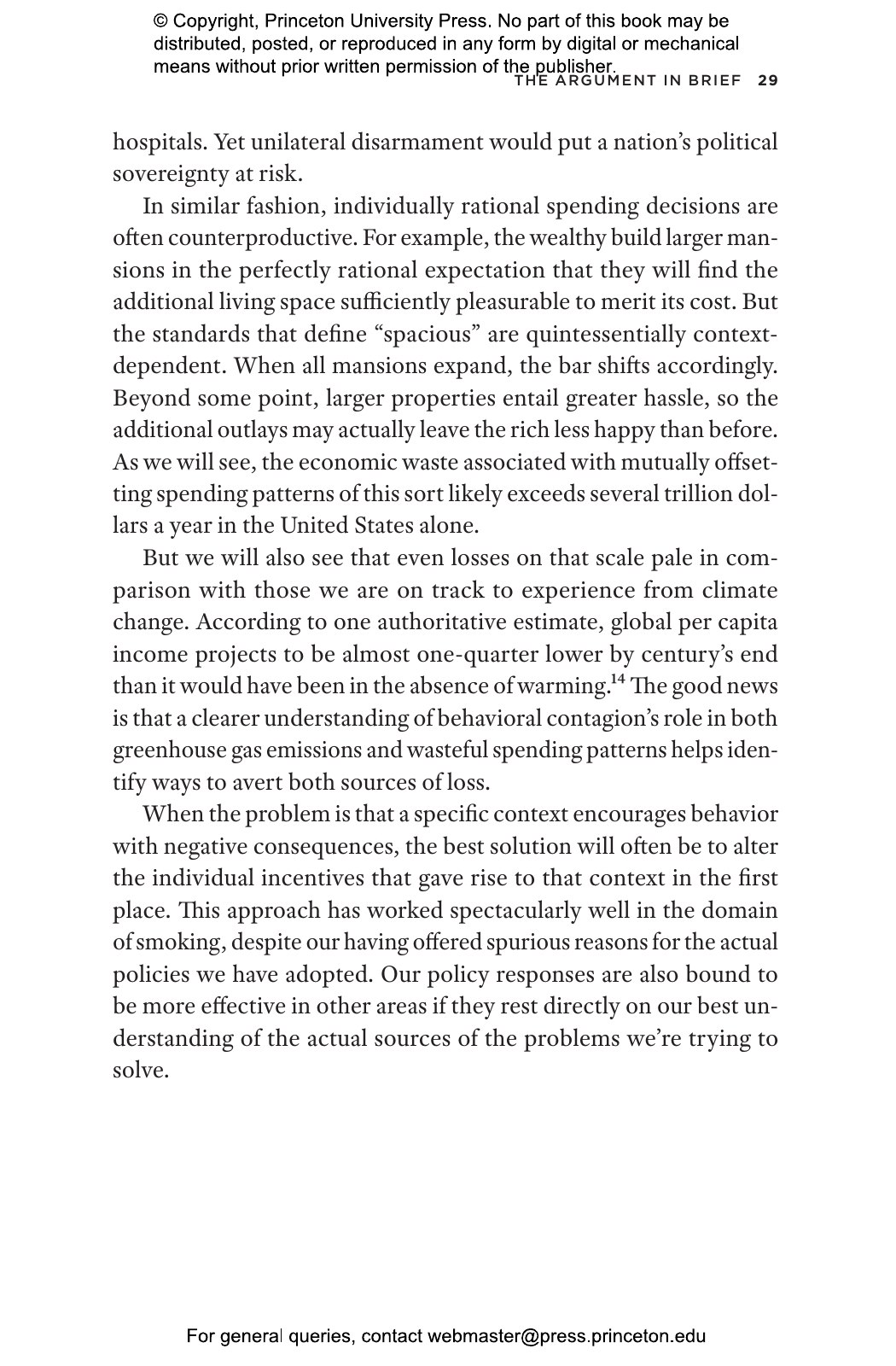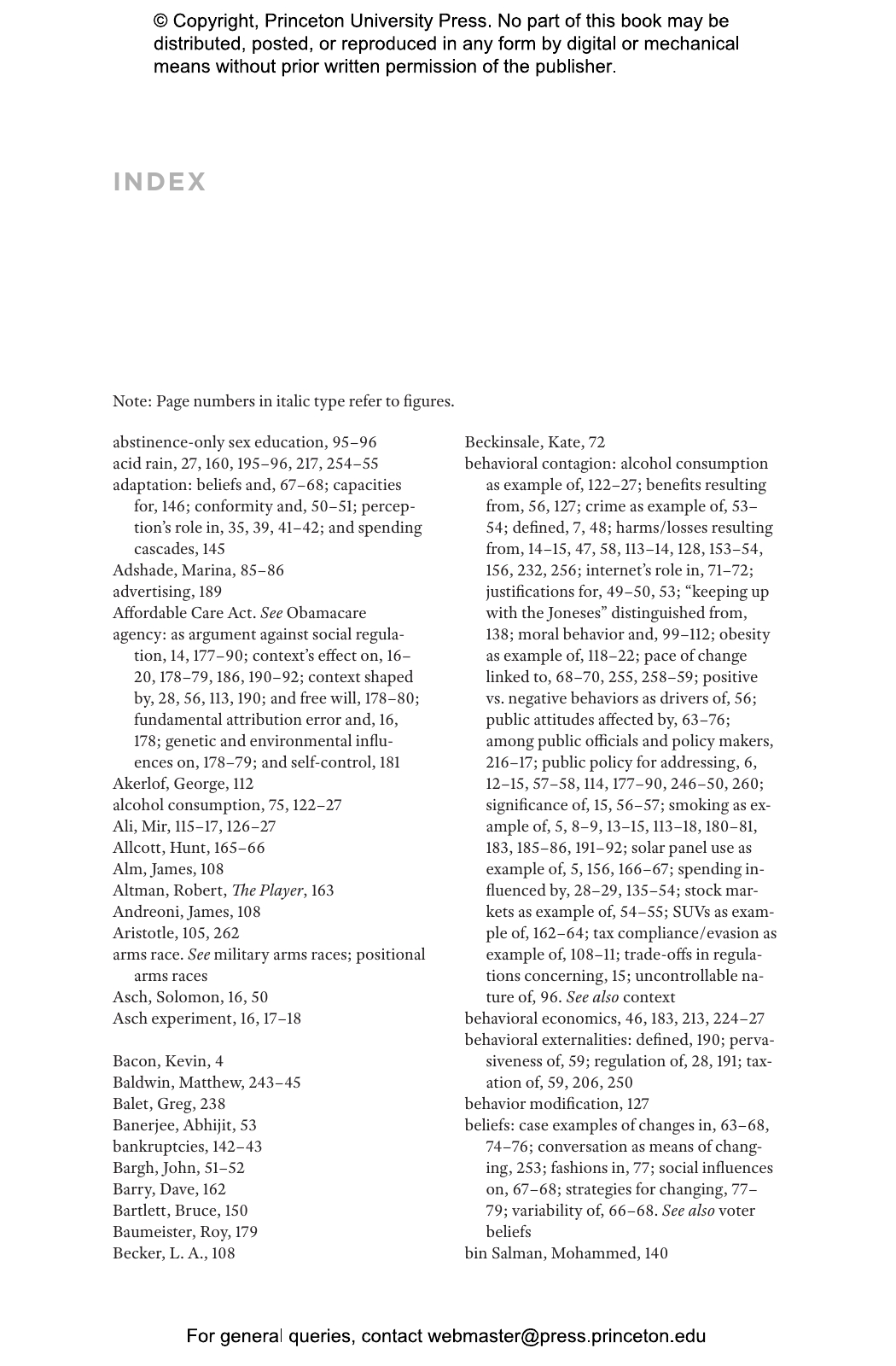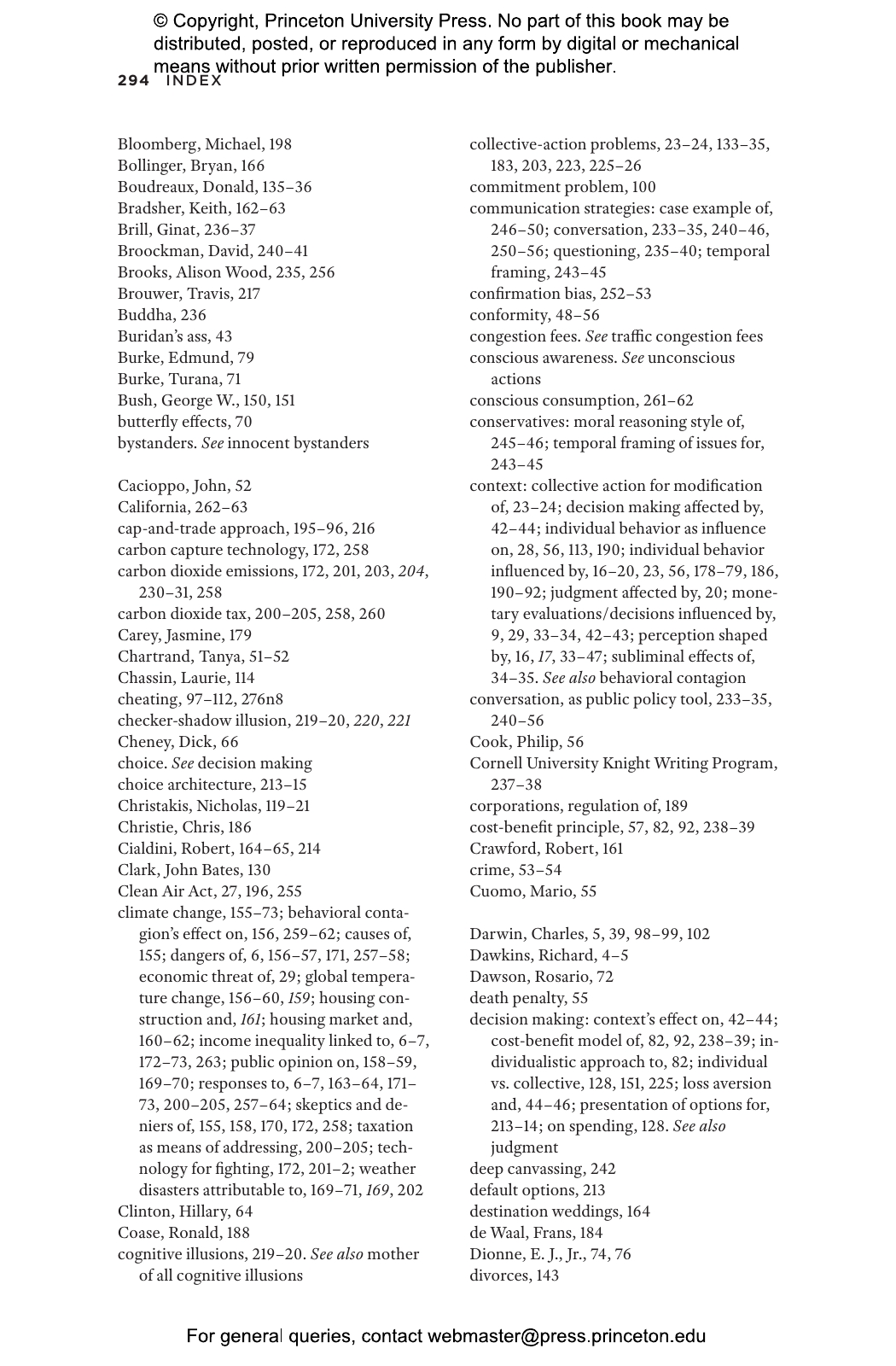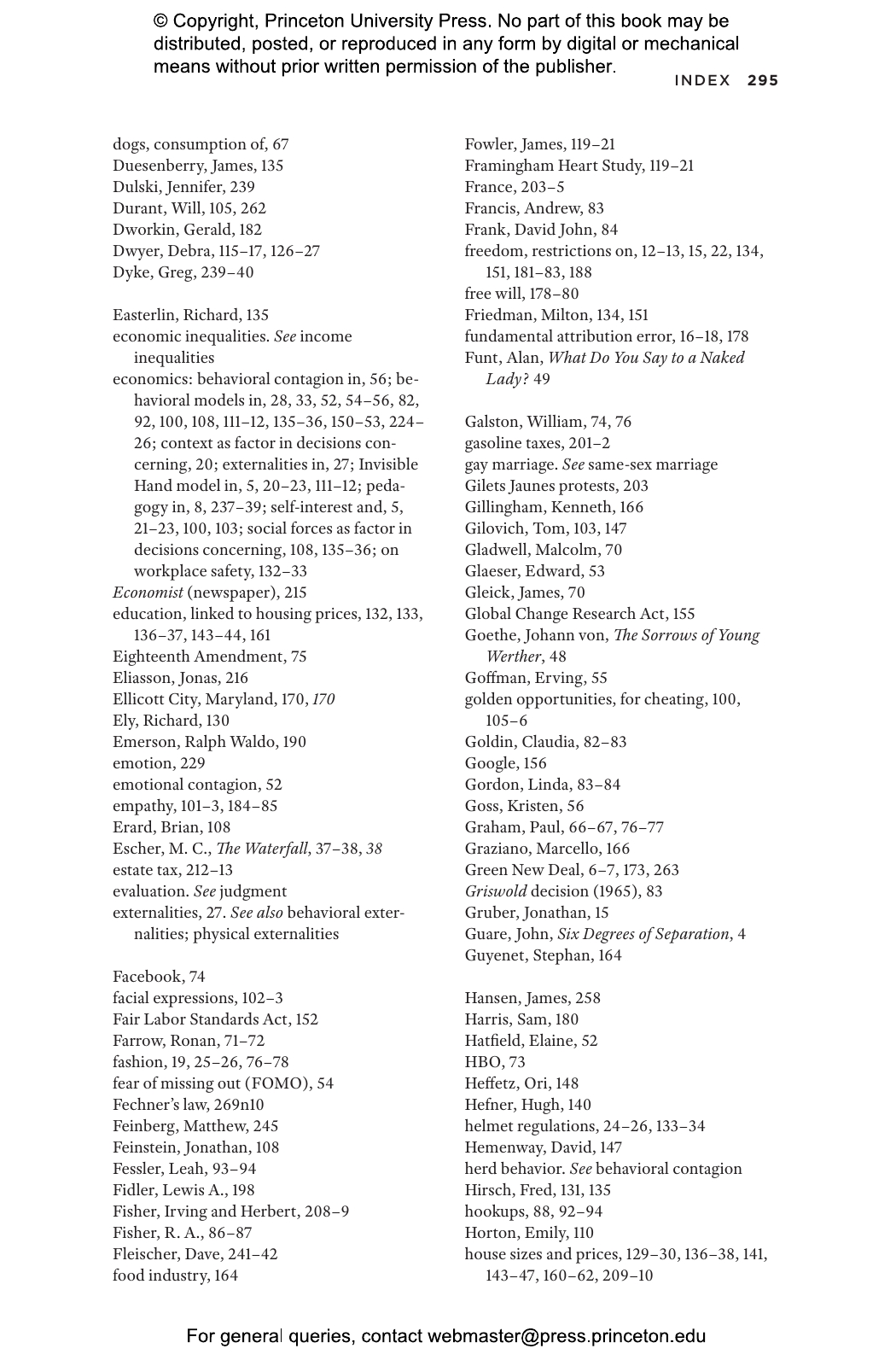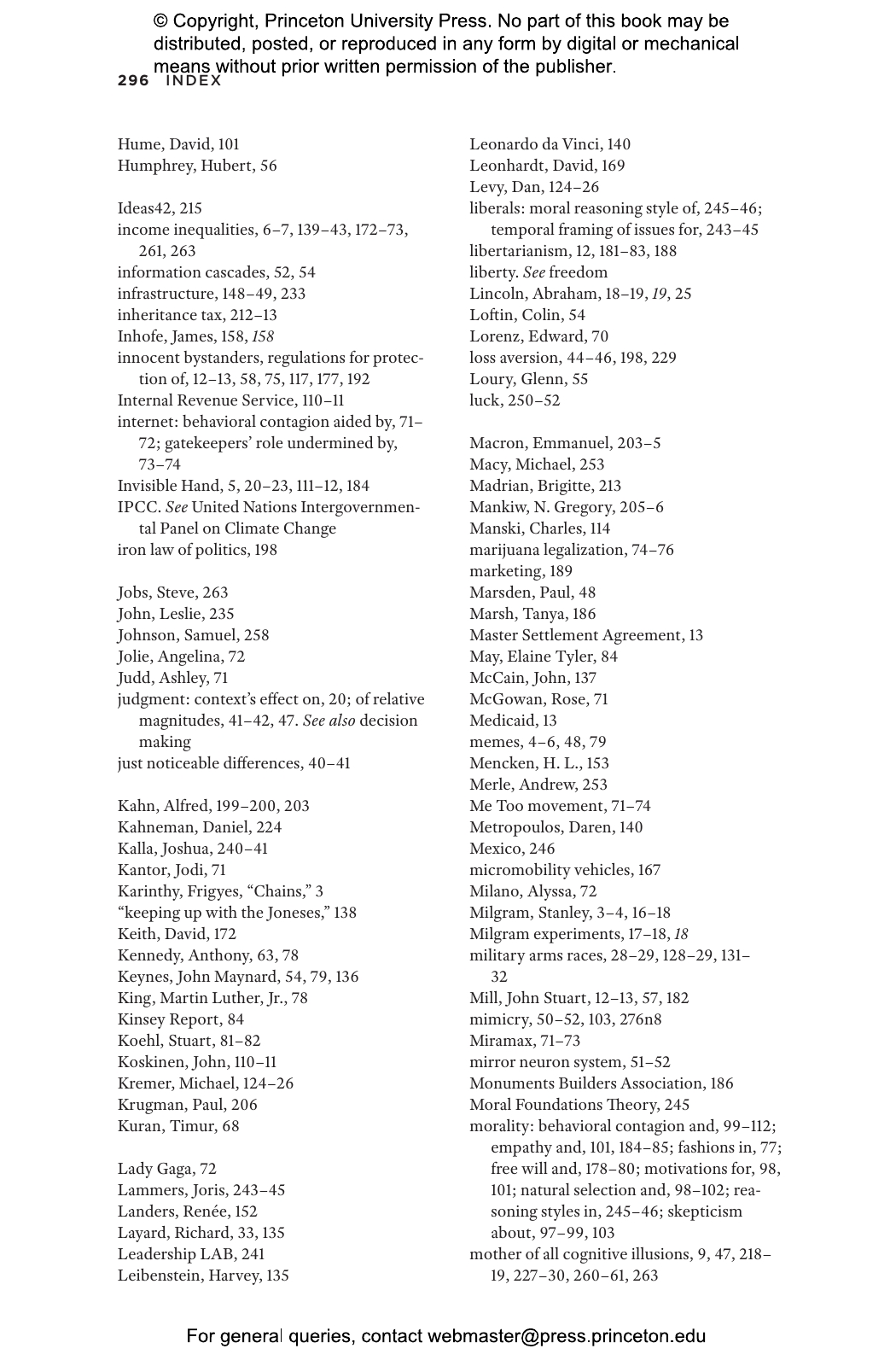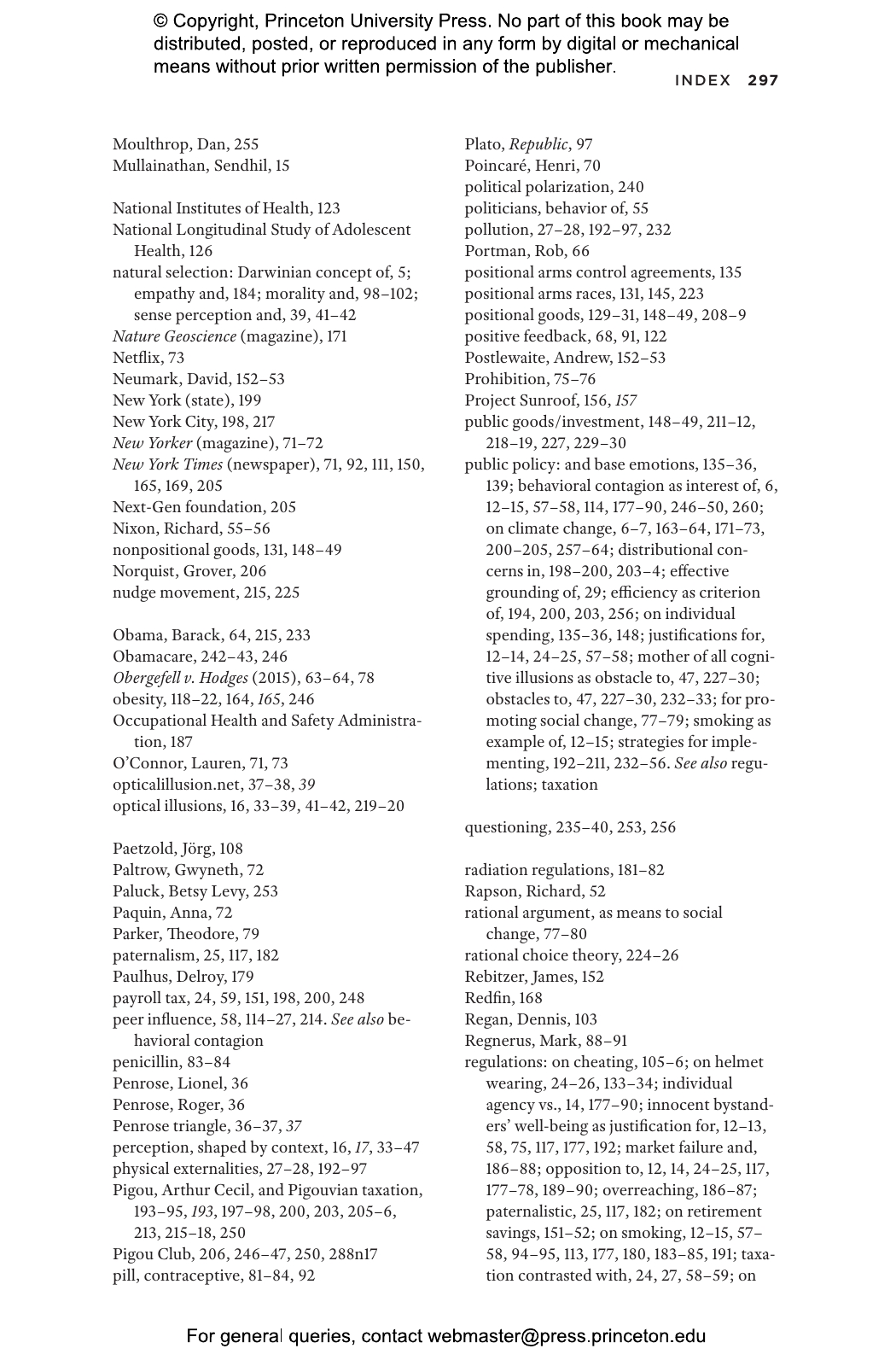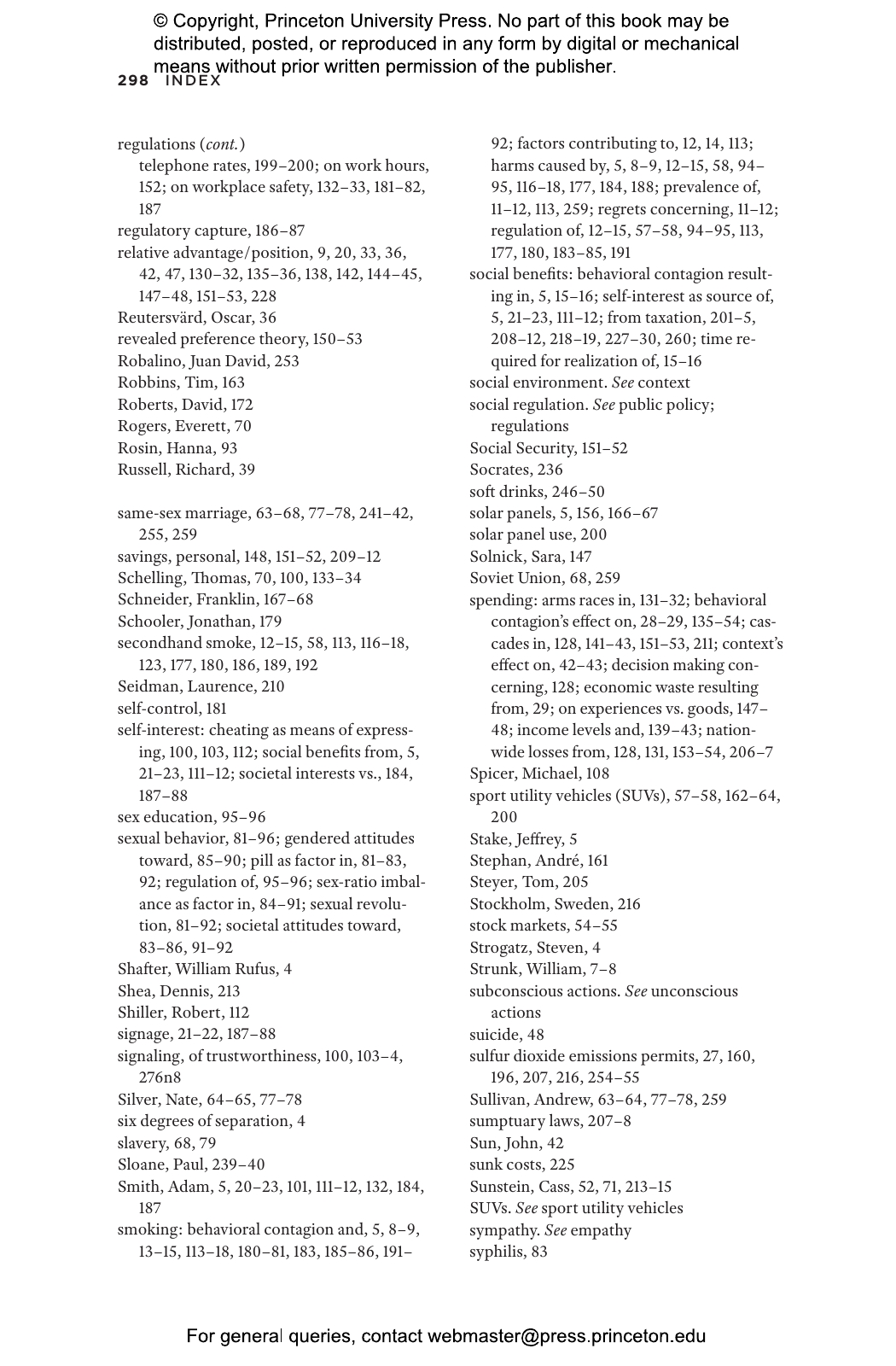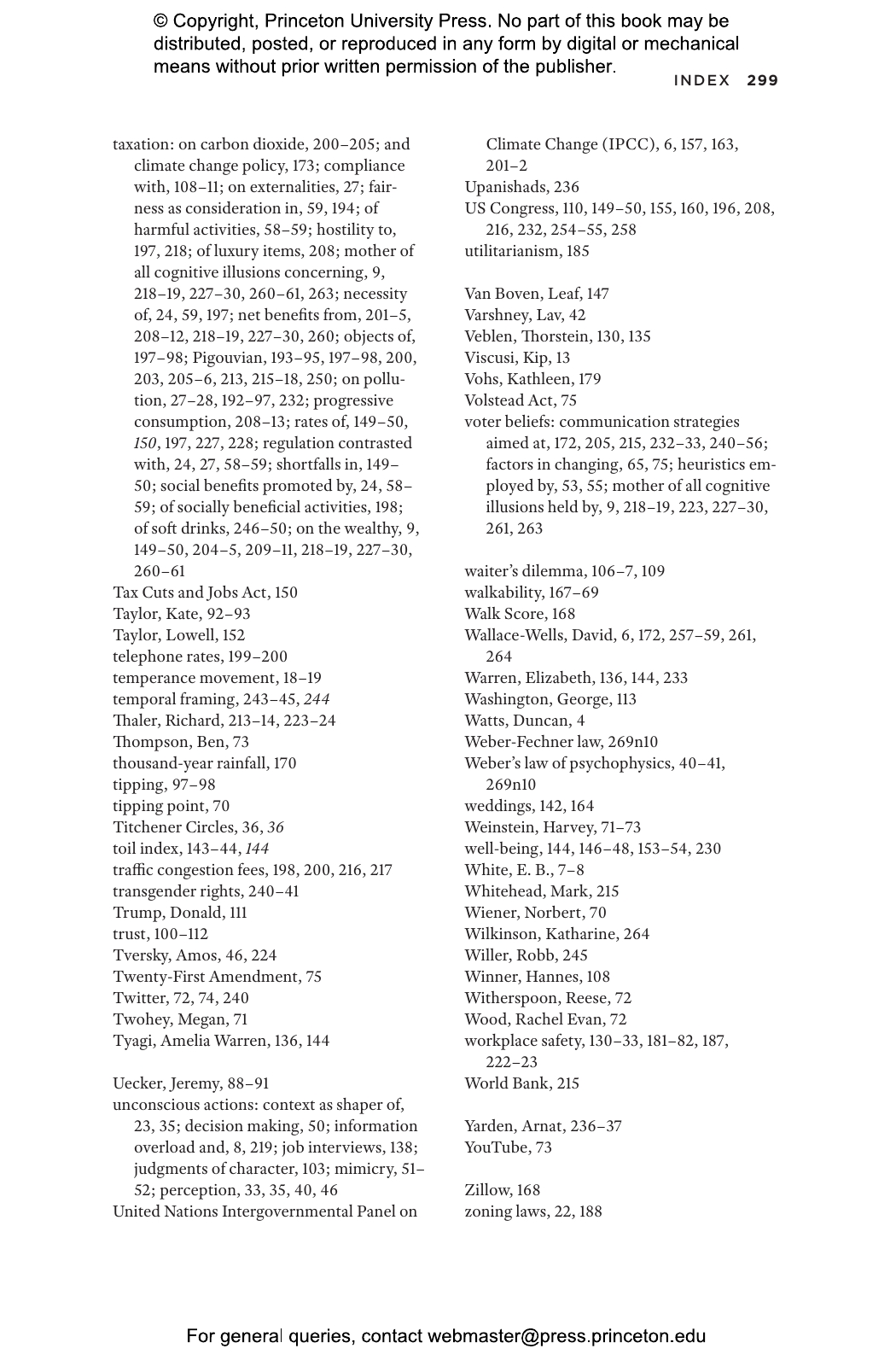Psychologists have long understood that social environments profoundly shape our behavior, sometimes for the better, often for the worse. But social influence is a two-way street—our environments are themselves products of our behavior. Under the Influence explains how to unlock the latent power of social context. It reveals how our environments encourage smoking, bullying, tax cheating, sexual predation, problem drinking, and wasteful energy use. We are building bigger houses, driving heavier cars, and engaging in a host of other activities that threaten the planet—mainly because that’s what friends and neighbors do.
In the wake of the hottest years on record, only robust measures to curb greenhouse gases promise relief from more frequent and intense storms, droughts, flooding, wildfires, and famines. Robert Frank describes how the strongest predictor of our willingness to support climate-friendly policies, install solar panels, or buy an electric car is the number of people we know who have already done so. In the face of stakes that could not be higher, the book explains how we could redirect trillions of dollars annually in support of carbon-free energy sources, all without requiring painful sacrifices from anyone.
Most of us would agree that we need to take responsibility for our own choices, but with more supportive social environments, each of us is more likely to make choices that benefit everyone. Under the Influence shows how.
"This is a fascinating look at the way other people unconsciously determine our everyday behaviour and is a useful addition to the many works on how human psychology affects economic decision making."—Money Week
"Frank's points . . . raise some big questions. Which reminds us that economics cannot be a merely technocratic discipline."—Chris Dillow, Stumbling & Mumbling
"This broadly themed book addresses the complexities of our social environments — for example, how group behavior gives rise to bullying — but a lot of what it discusses applies to worldwide environmental issues, too. The result is a combination of psychology and economics that illustrates how the human ‘herd instinct’ can be put to good use to solve the climate crisis and other problems."—John R. Platt, The Revelator
"An invaluable new book. . . . If policy-makers have any sense, this book will be as important a manual in the 2020s as Nudge was in the 2010s."—Felix Martin, New Statesman
"This erudite, provocative book is apt for reading now."—Julia Hobsbawm, Evening Standard
"Extraordinarily timely: It’s an effort to show that the economics of social contagion could reshape the world, solving our hardest problems — from climate change to income inequality — and offering new ways to think about the power we have as individuals. Absent the pandemic, its argument might’ve seemed abstract, optimistic. But now we’ve seen it happen. We are watching a version of Frank’s thesis play out right now, in real time. In the wake of coronavirus, social pressure has driven perhaps the single fastest behavioral transformation in human history. It is the example and pressure we face from each other that has made social distancing so effective, so fast. And if social pressure can do that — what else can it do?"—Ezra Klein, Vox
"Throughout his career, in influential books . . . Frank has examined the importance of status-seeking and social interactions in society and the economy. Continuing with that theme, Under the Influence argues that social context shapes choices far more than many people realize. . . . As usual, Frank’s book is full of information and insights that will interest even those who do not agree with his policy agenda."—R. M. Whaples, Choice
"Brilliant, fun, and profound. Other people influence us a lot more than we think, which is a big problem but also a terrific opportunity. Robert Frank shows exactly why. Read this book—everyone else is going to!"—Cass R. Sunstein, author of On Freedom
"An important and thought-provoking examination of how key individual choices are shaped by social context and fashion—and a clarion call for policies that better respond to that insight."—Bina Venkataraman, author of The Optimist's Telescope: Thinking Ahead in a Reckless Age
"Under the Influence describes a neglected goal for social policy: to gently foster the wisdom needed, individually and collectively, to achieve the Good Life. Frank's own wisdom is on view in every paragraph of this book, with its brilliant perspective on—and solution to—the problems of our times."—George Akerlof, Nobel Laureate in Economics
"Call this book 'the mother of all cognitive illusions' meets 'the mother of all suicidal delusions.' Interested? You should be if you are really worried about how the cost of the Green New Deal is going to be met—logically, rationally, equitably, and soon. Robert Frank is not kidding when he asserts that even a middle schooler would understand his explanations of the public-policy stupidity that results when what he calls behavioral contagion trumps right actions."—Anthony Ingraffea, Cornell University
"Economists are learning that human behavior is more than just a series of cost/benefit calculations. Robert Frank has been at the forefront of bringing biology and psychology into the equation, including our sensitivity to how those around us think and act. The human 'herd instinct' has consequences ranging from how we regulate tobacco to how we can avert a climate catastrophe."—Frans de Waal, author of Mama's Last Hug: Animal Emotions and What They Tell Us about Ourselves
"Smart, delightful, and provocative, Under the Influence is designed to rock your boat—and maybe even sink it. Not to be missed!"—Daniel Gilbert, Harvard University
"Under the Influence is a brilliant, necessary corrective to the narrow and often debilitating conventional wisdom of economics applied to the biggest crises of our time. Behavioral contagions have paralyzed us for decades, but they are not just negative forces, undermining our best interests. They can also empower us, even against what seem insurmountable challenges. Robert Frank shouldn't just change the way we think about those challenges, but how we respond to them, too."—David Wallace-Wells, author of The Uninhabitable Earth
